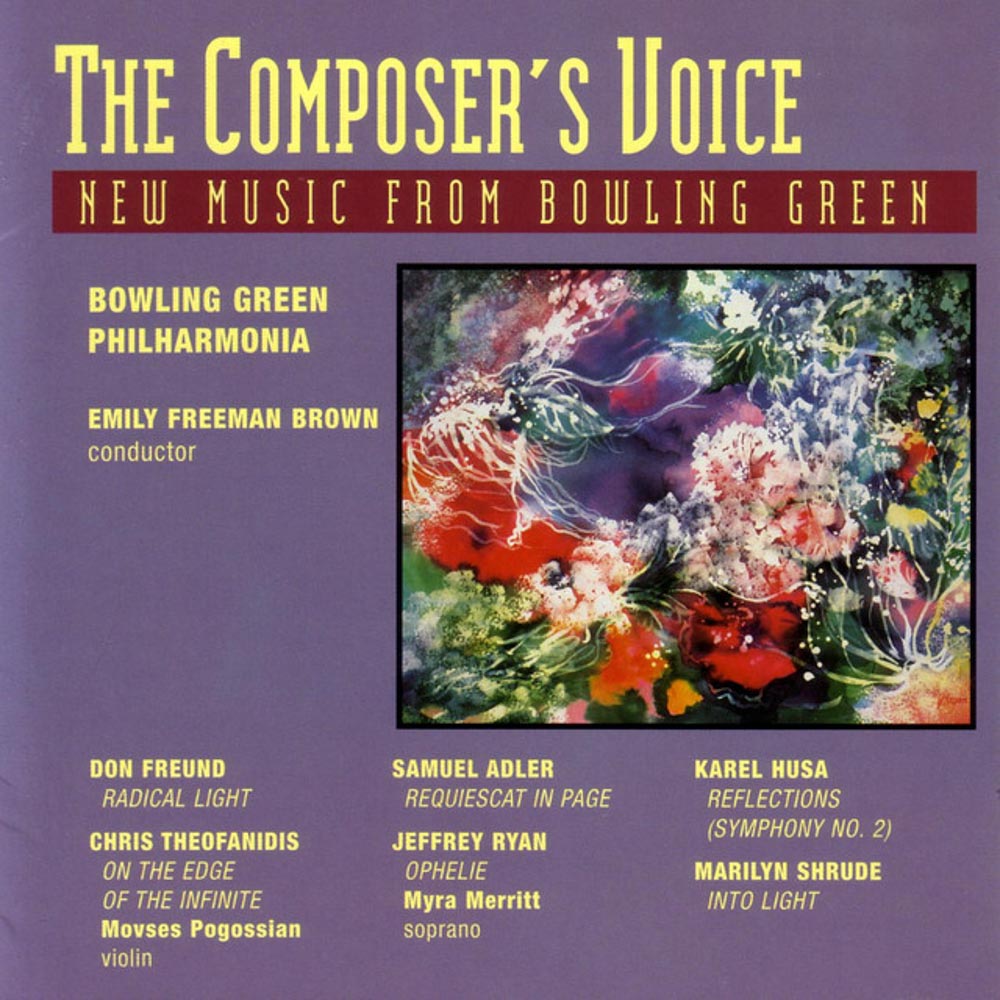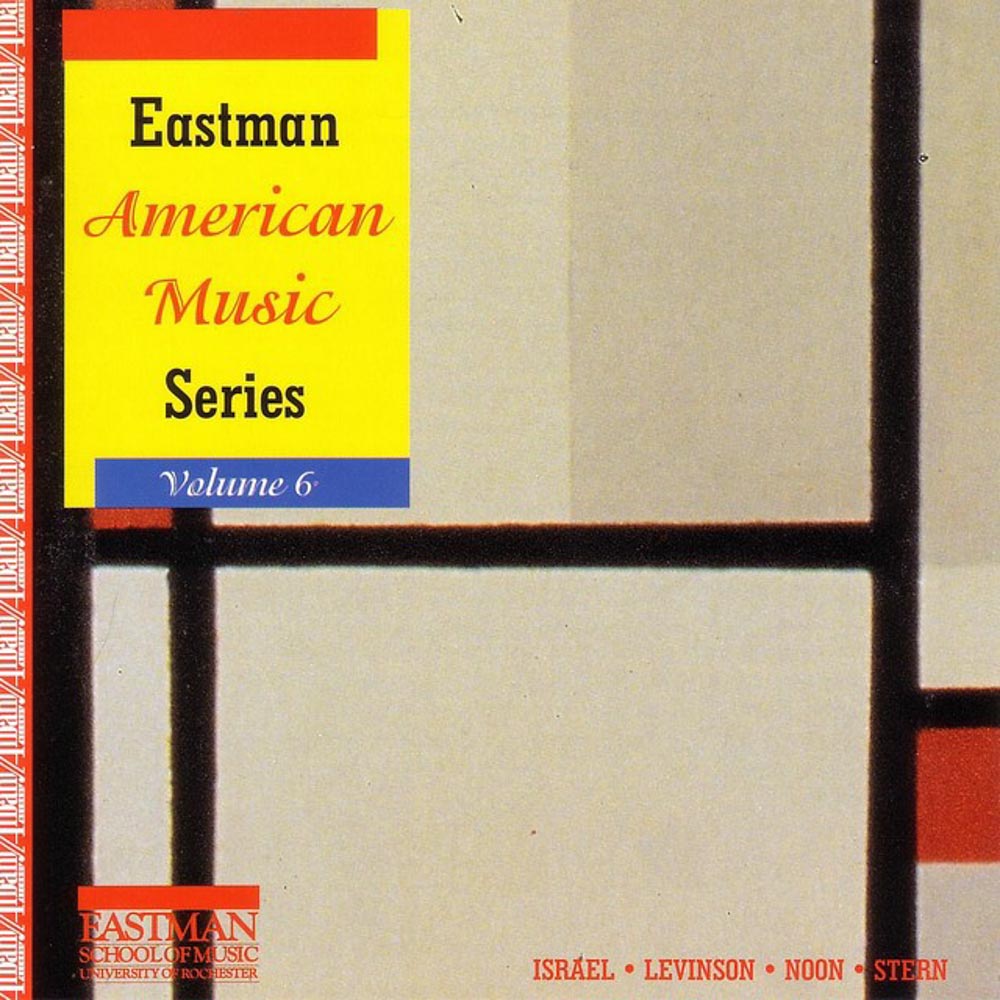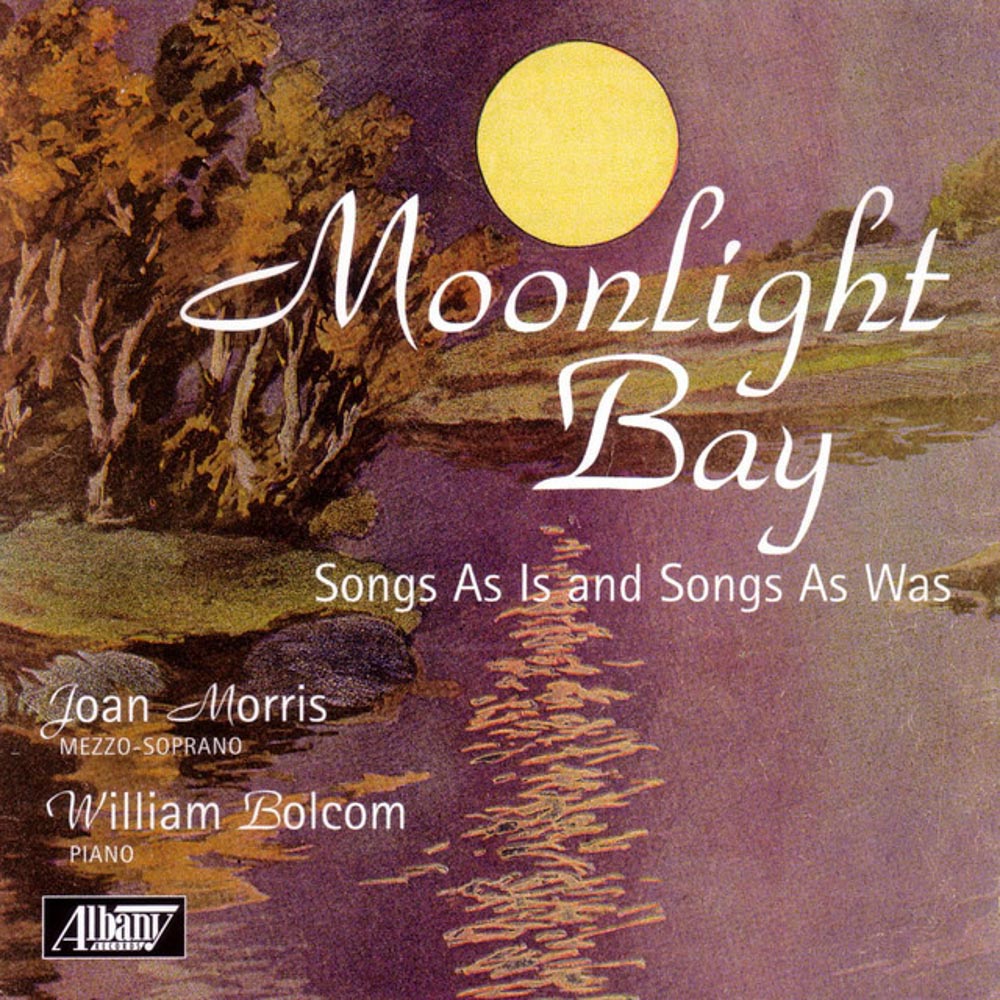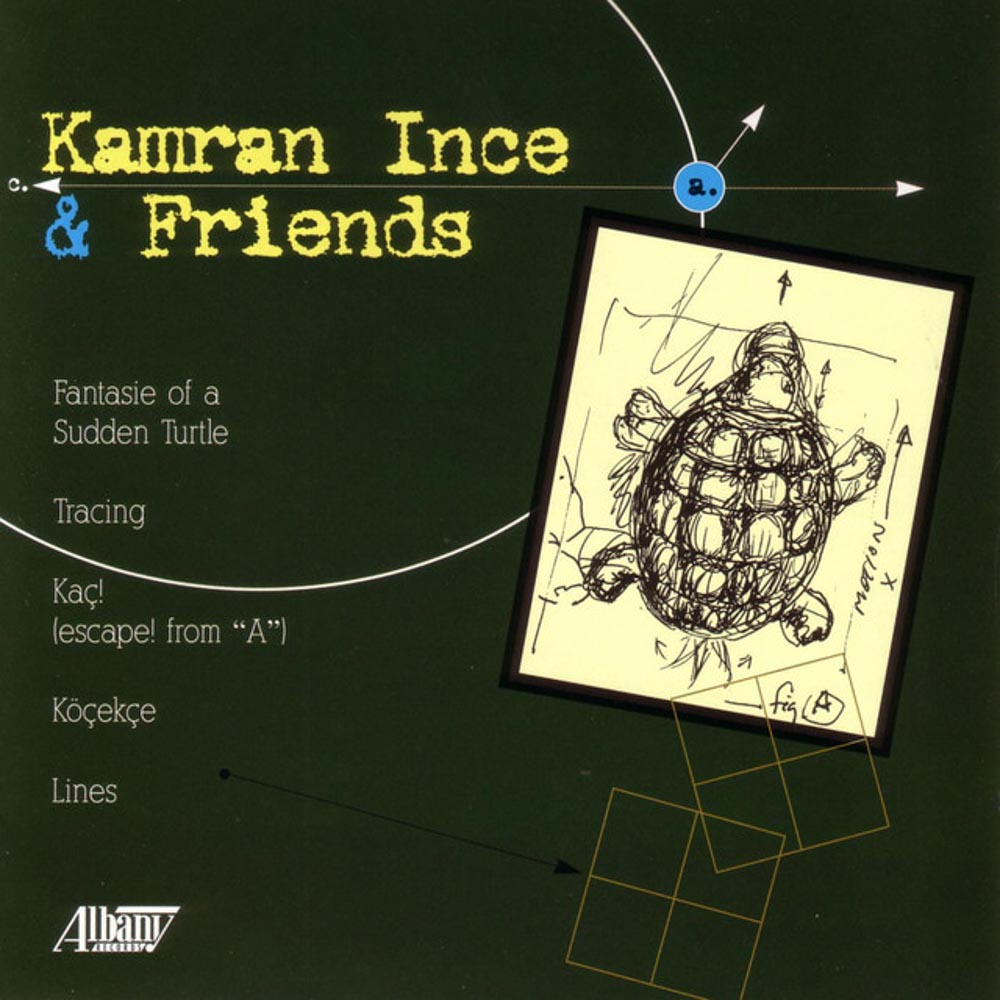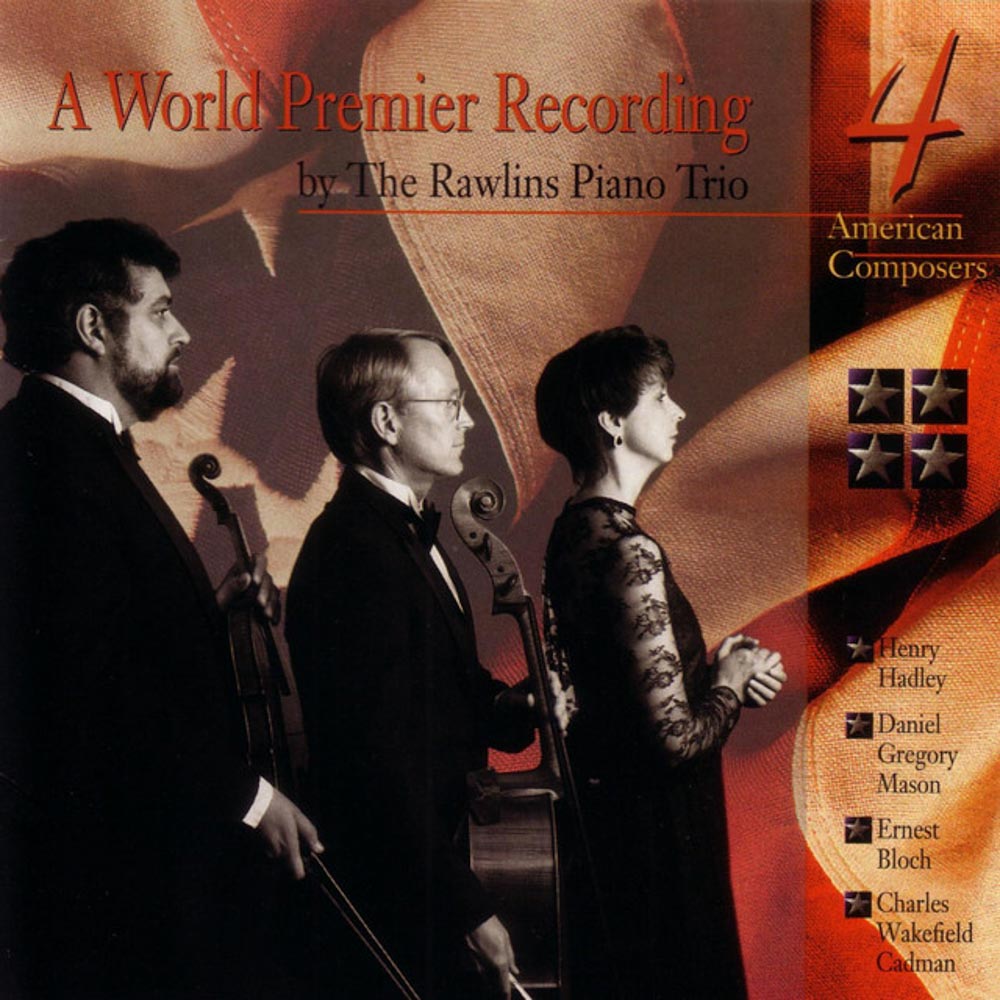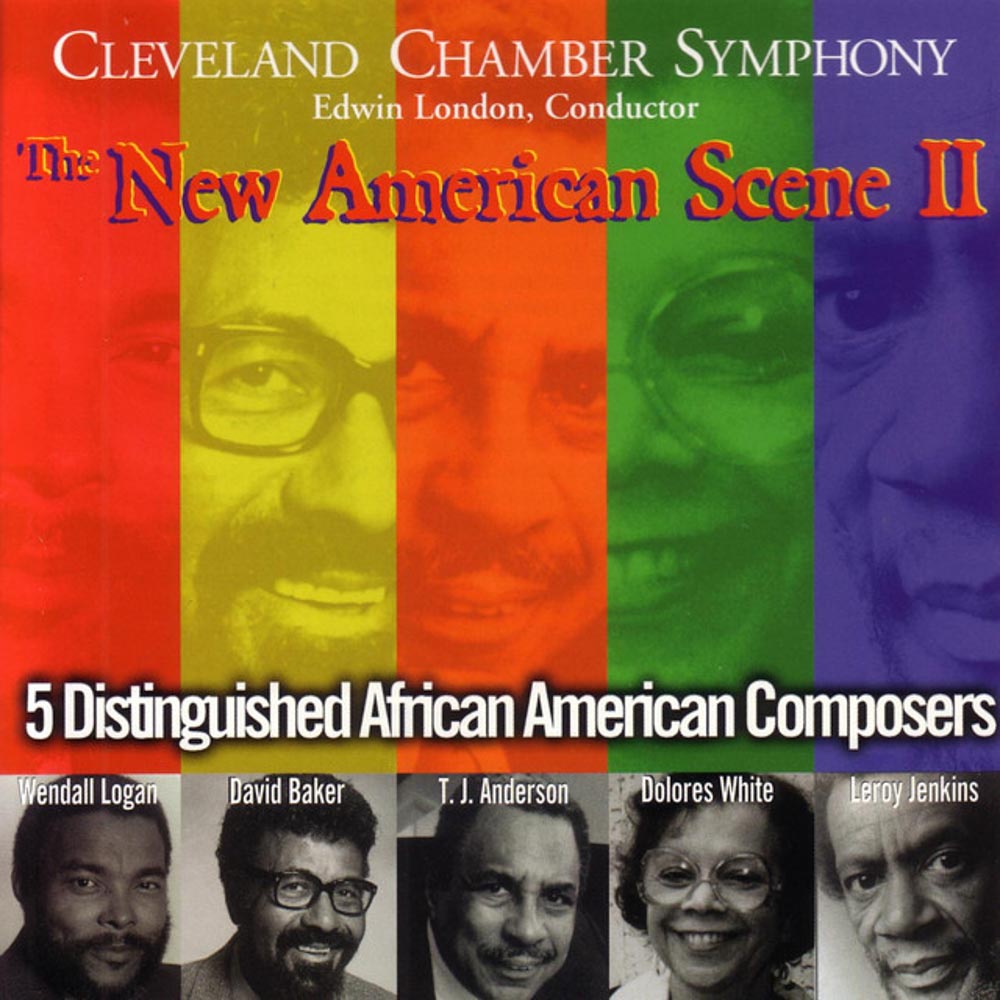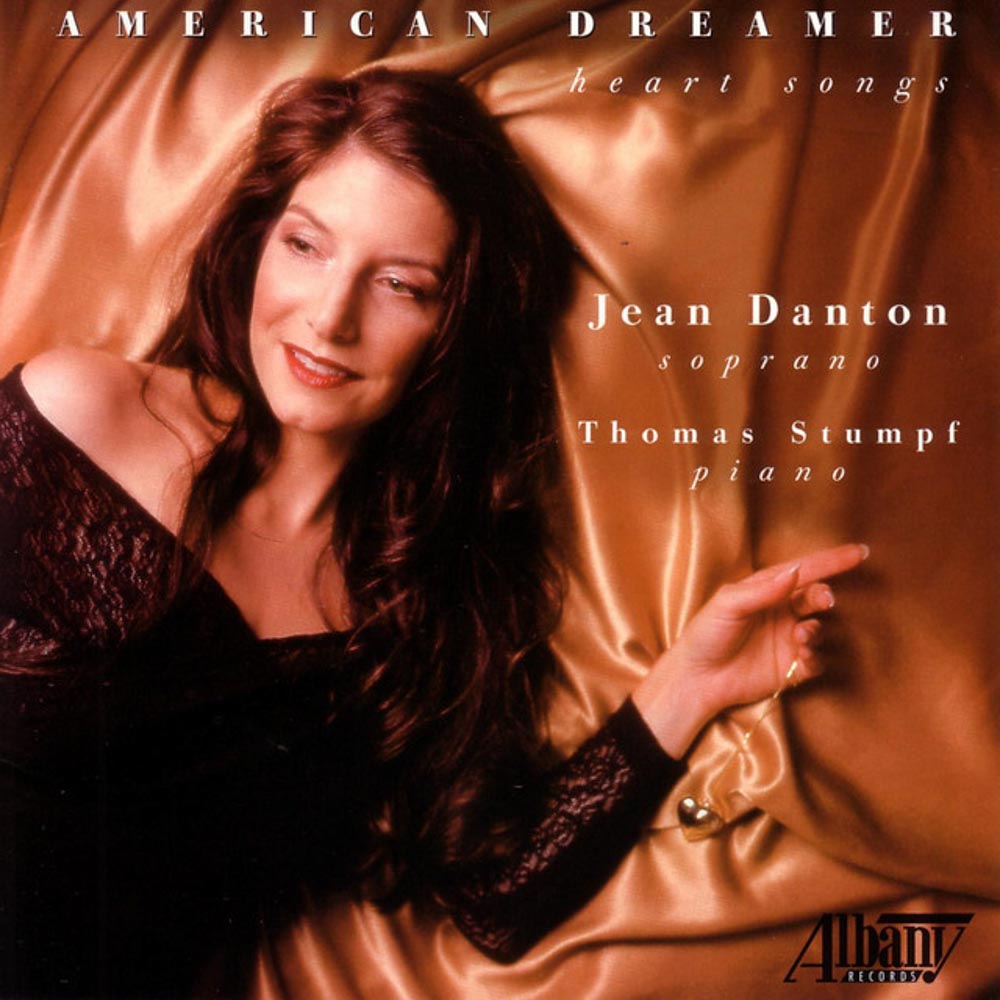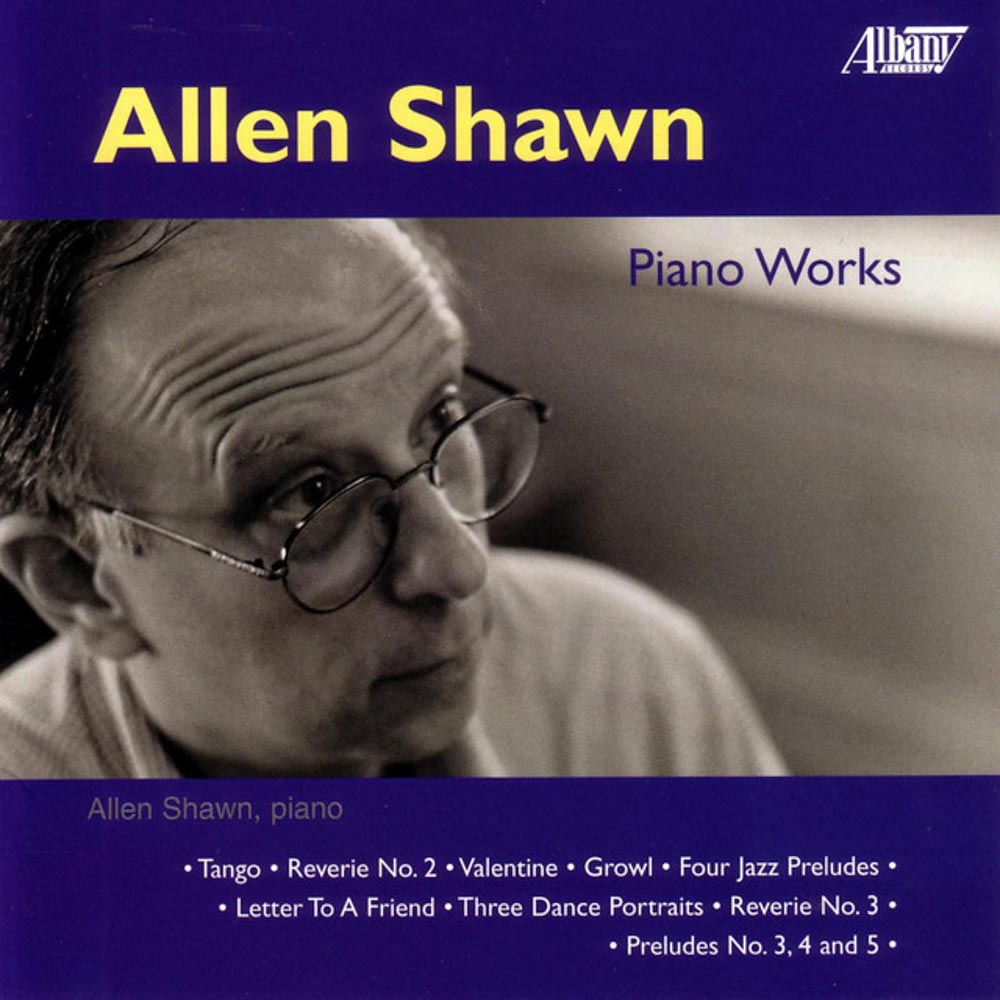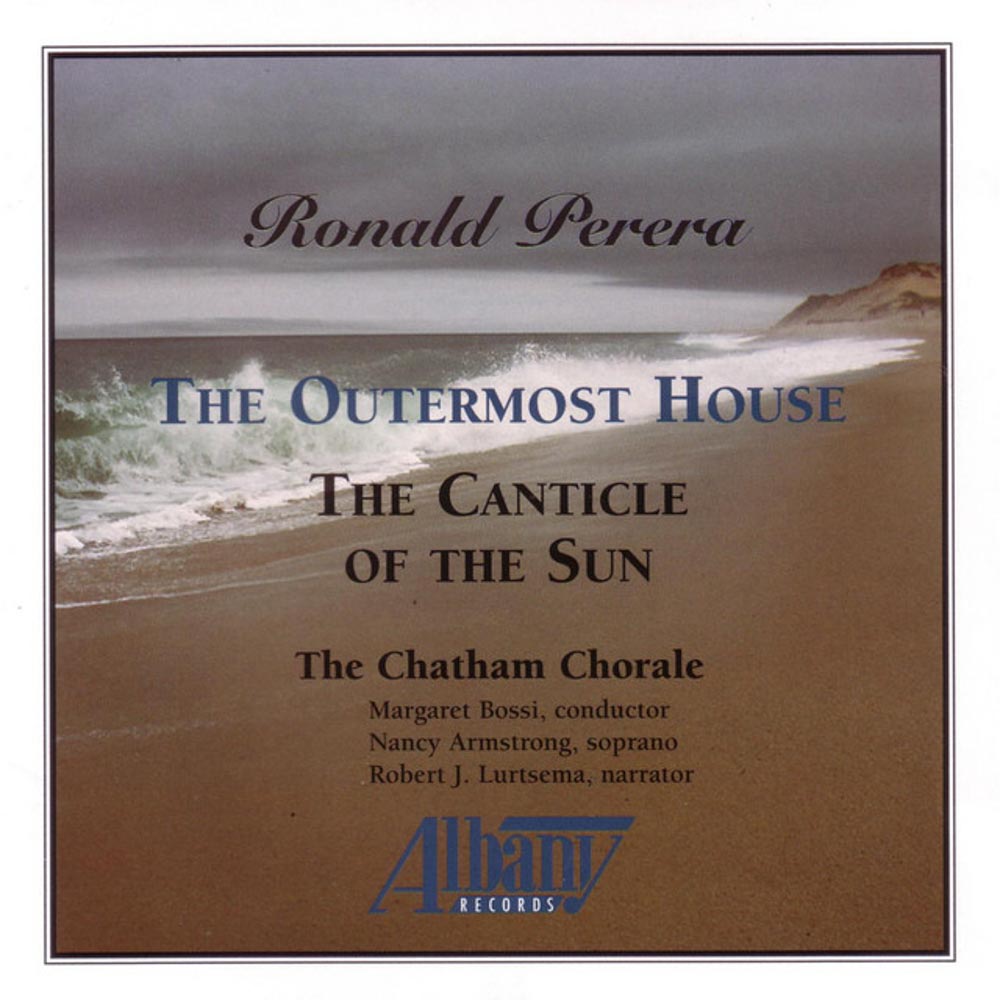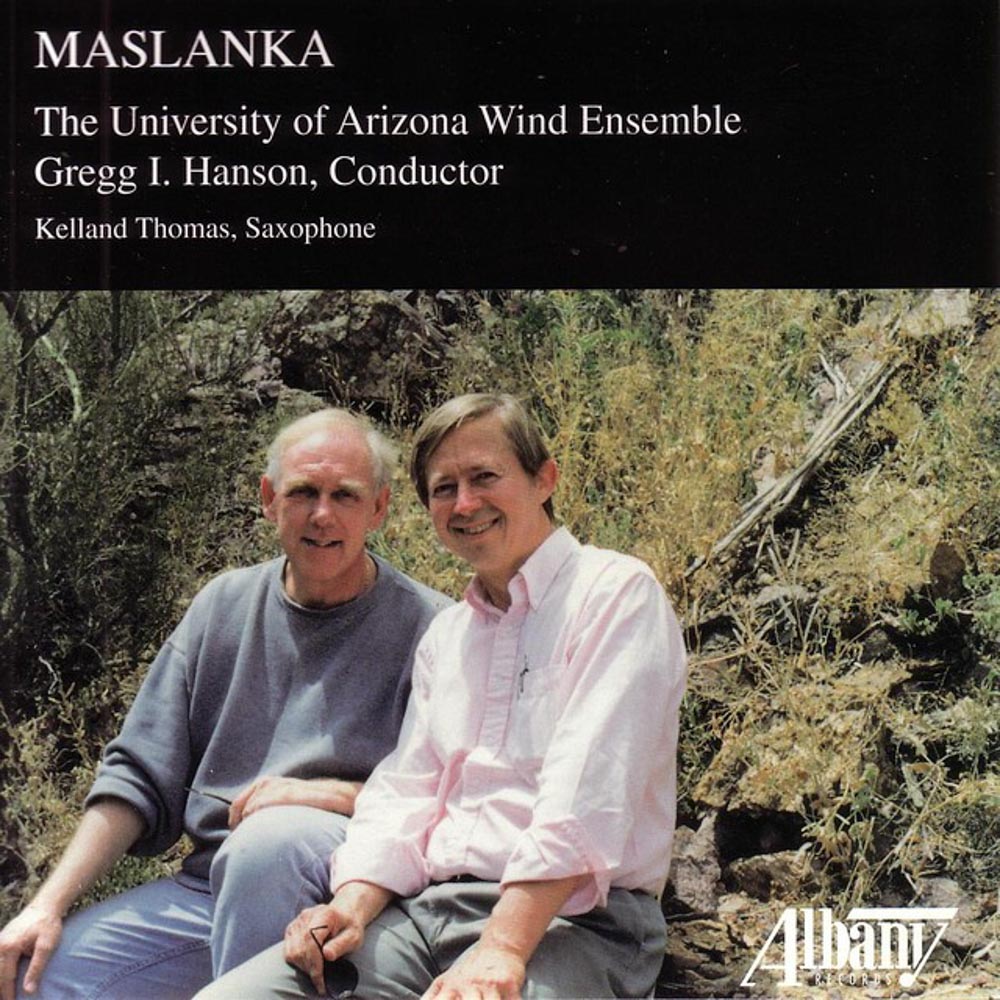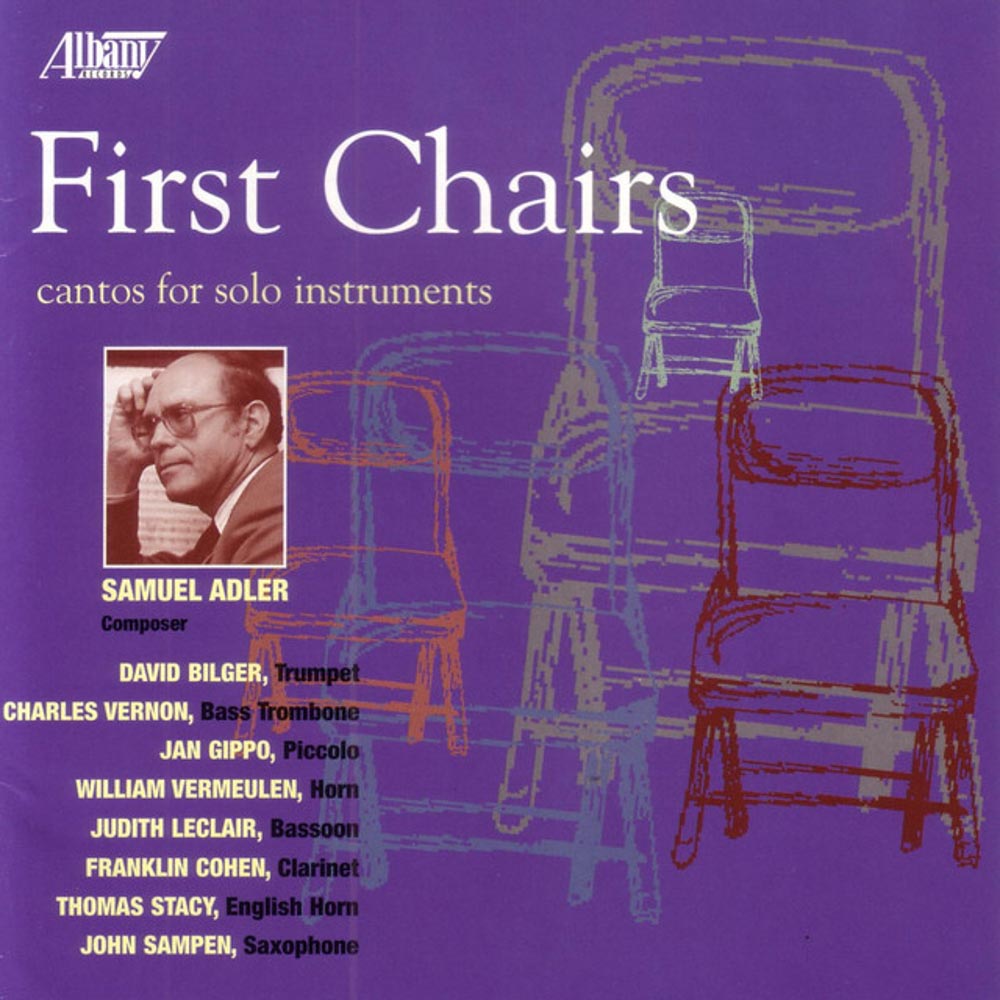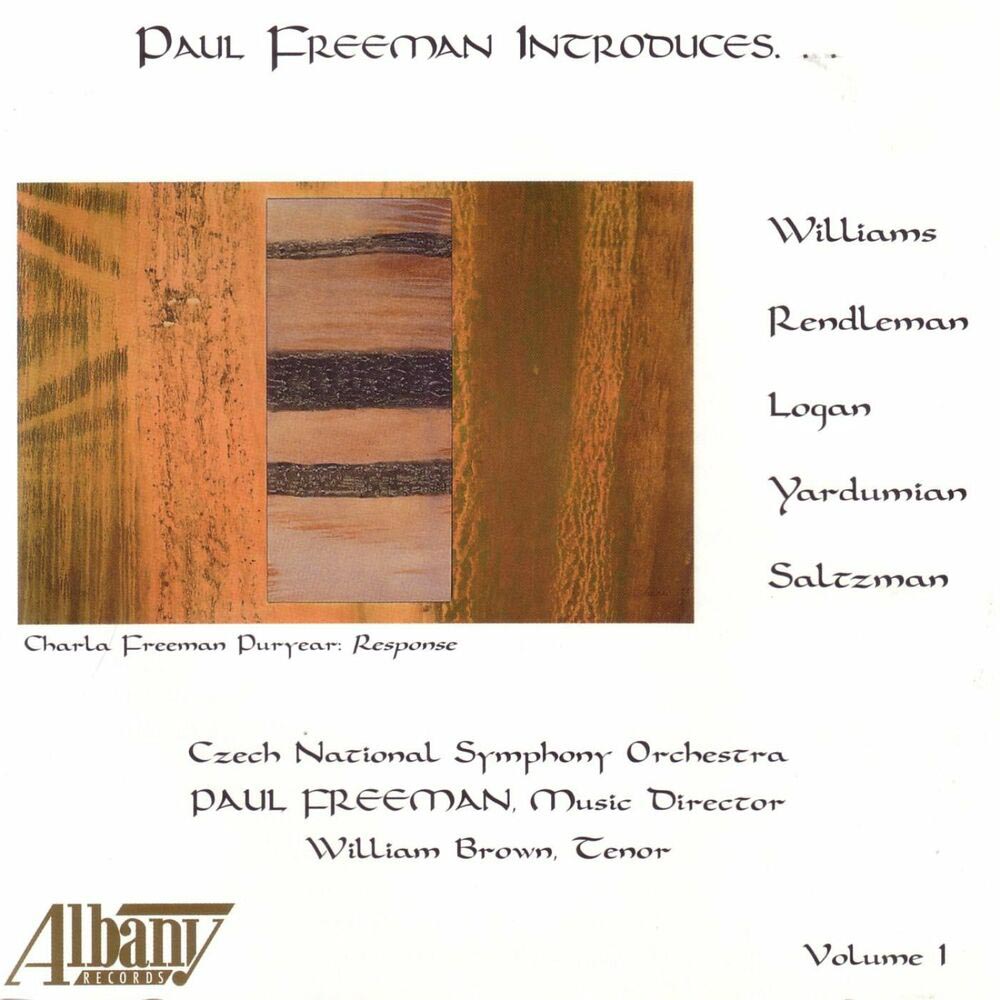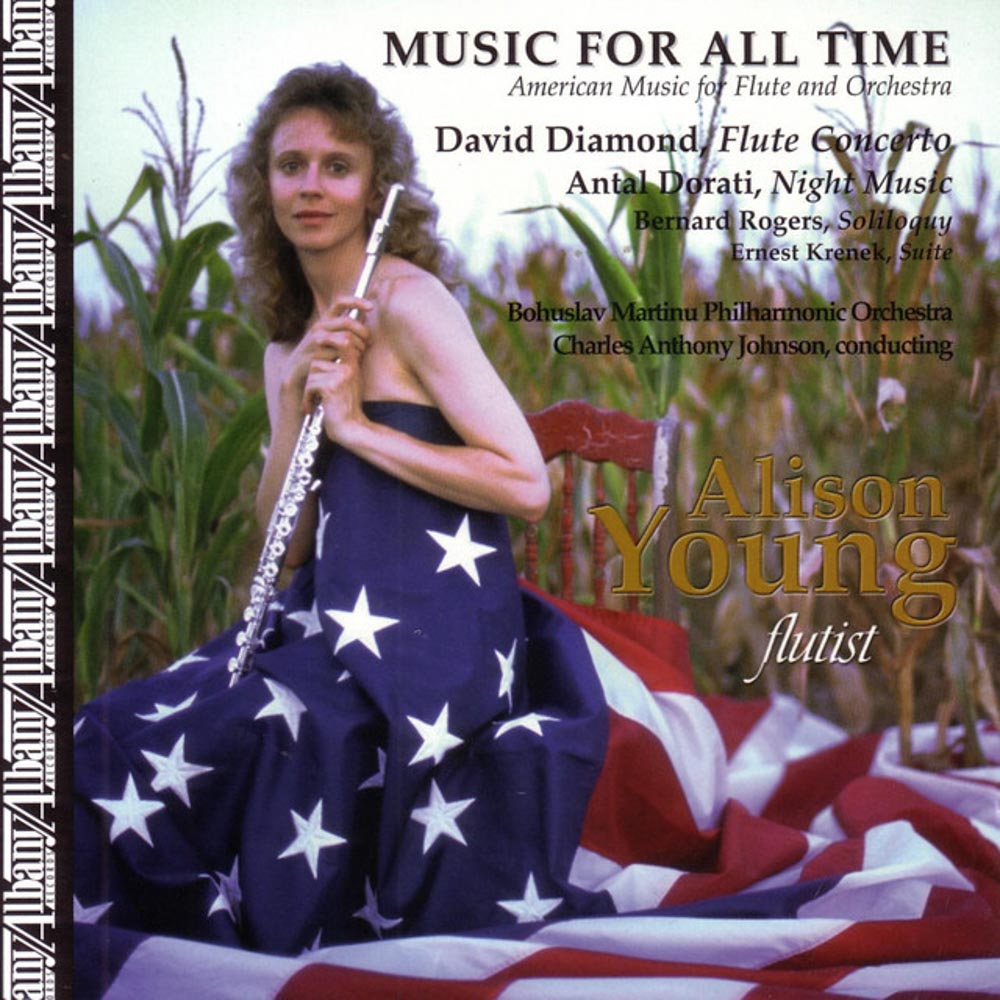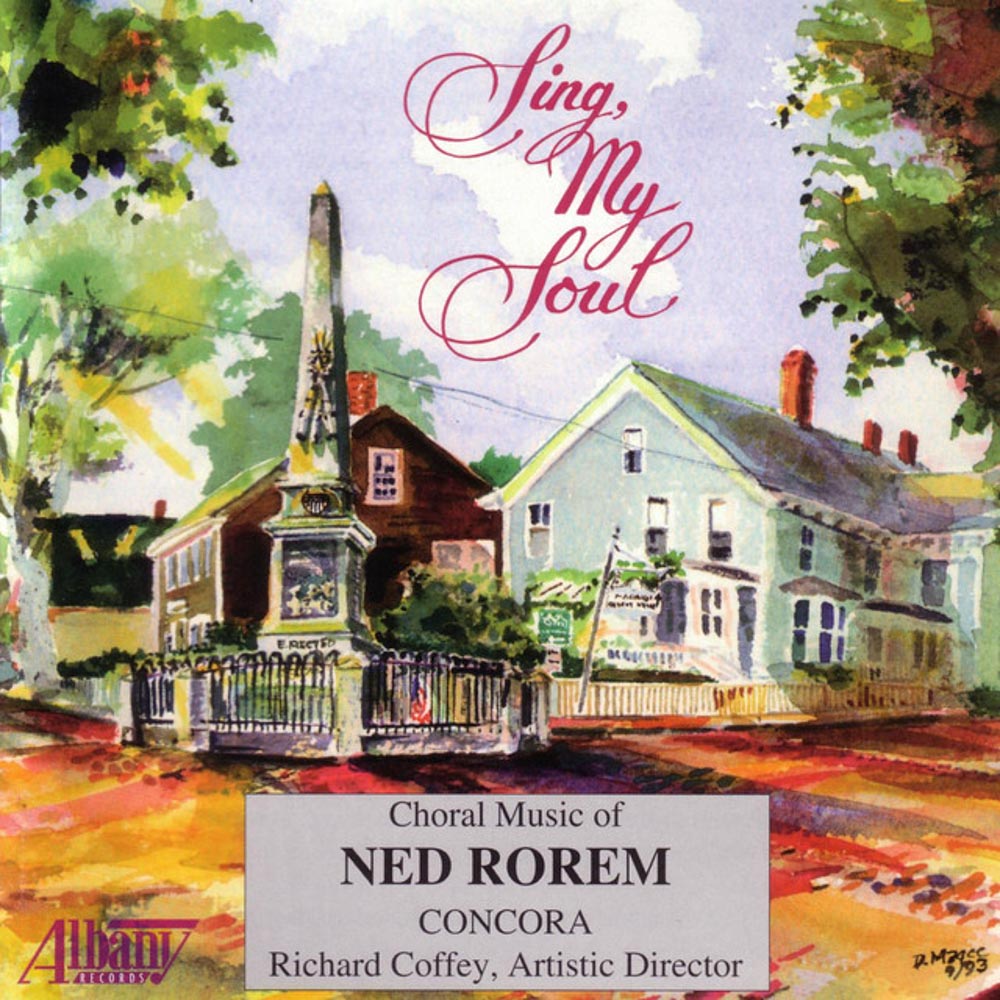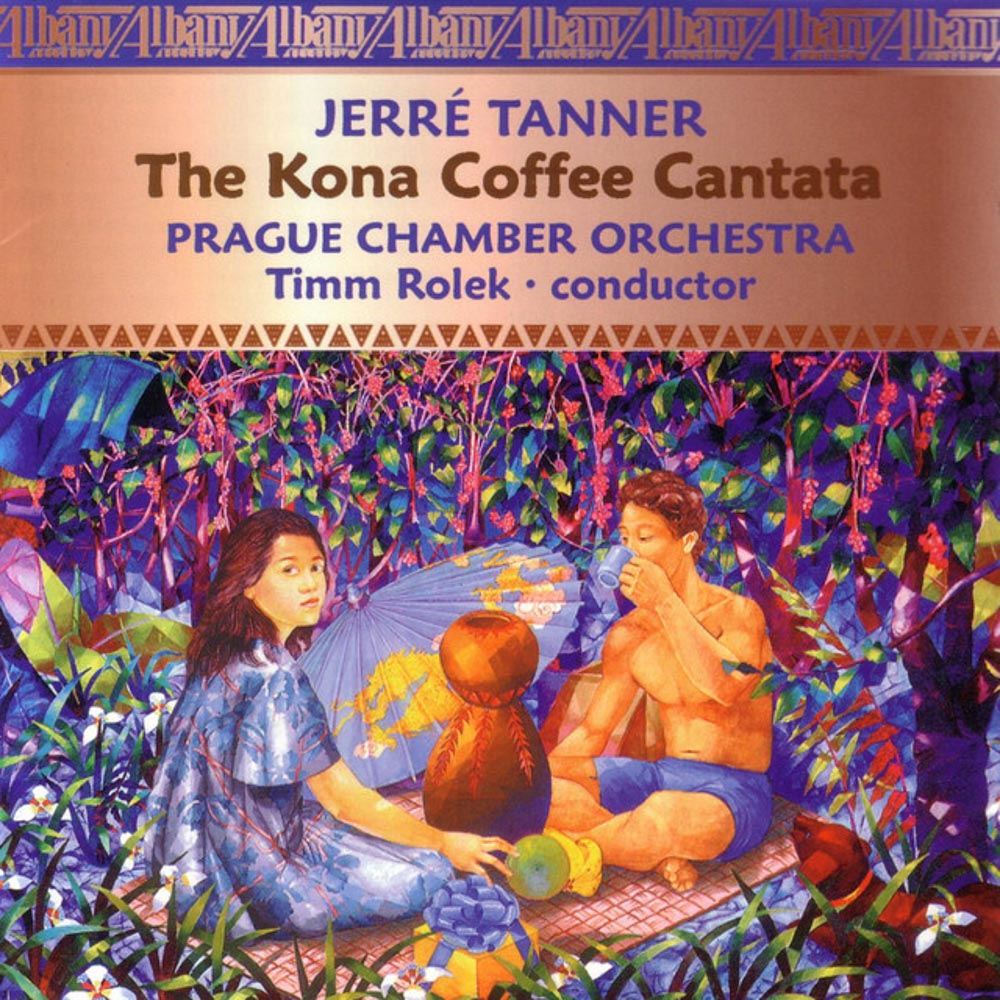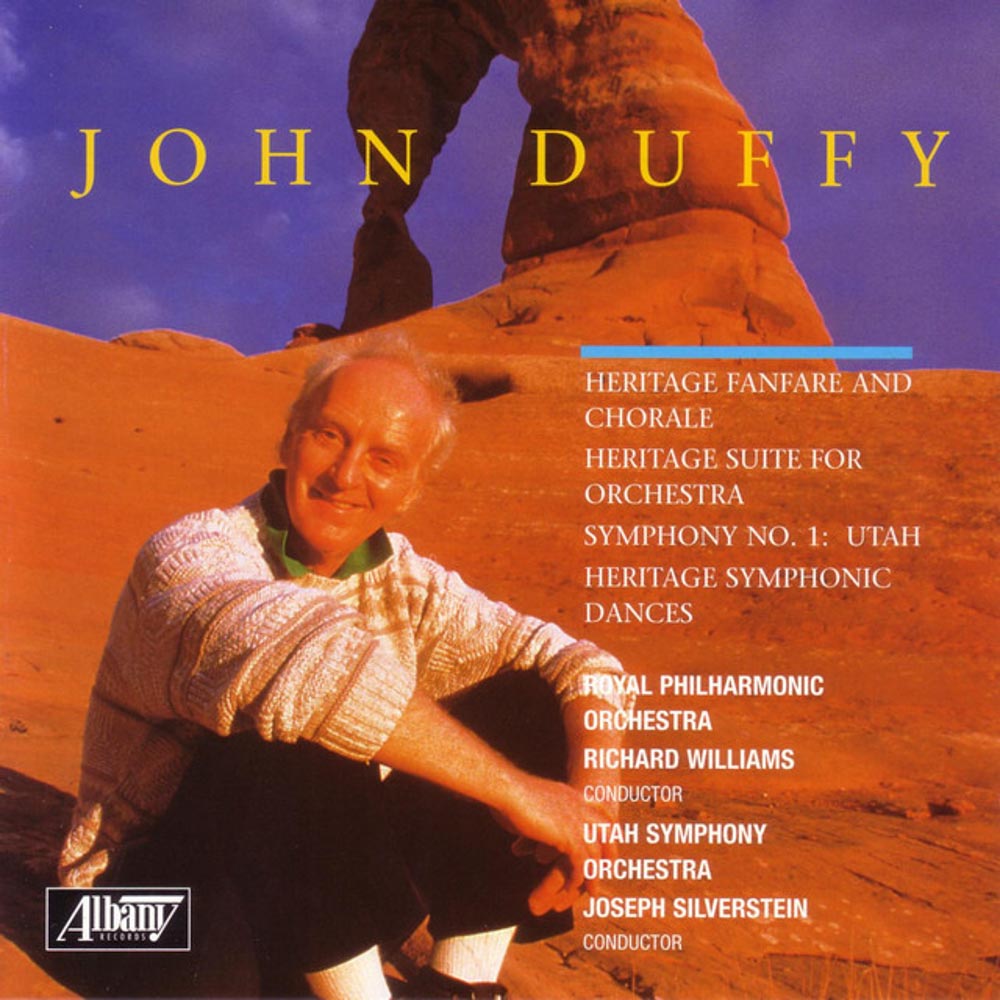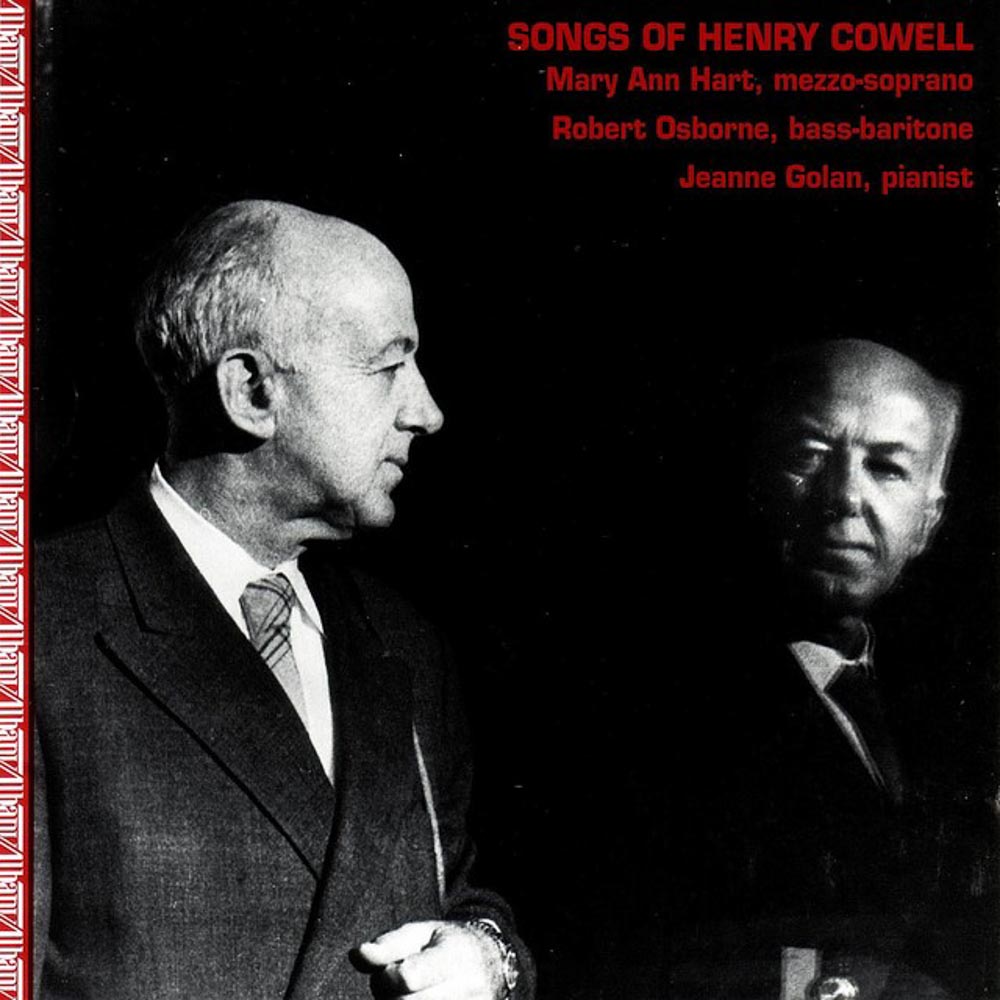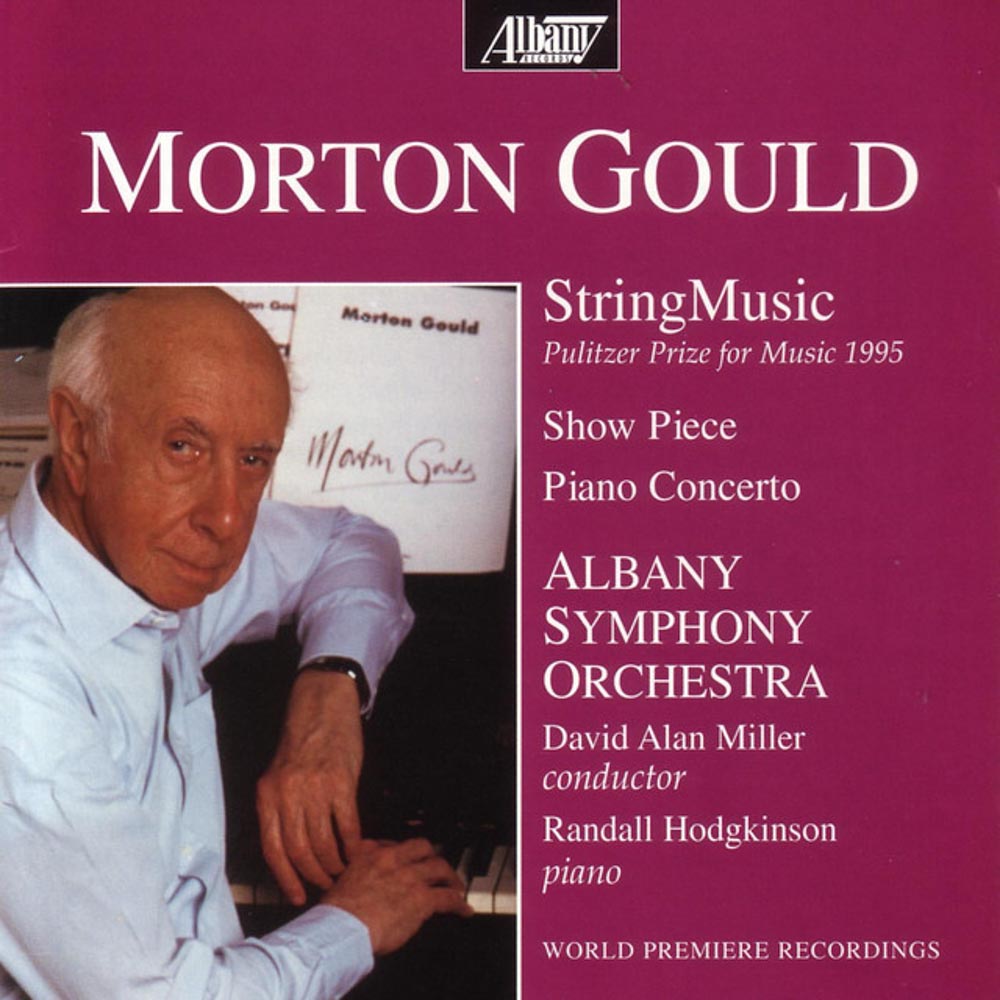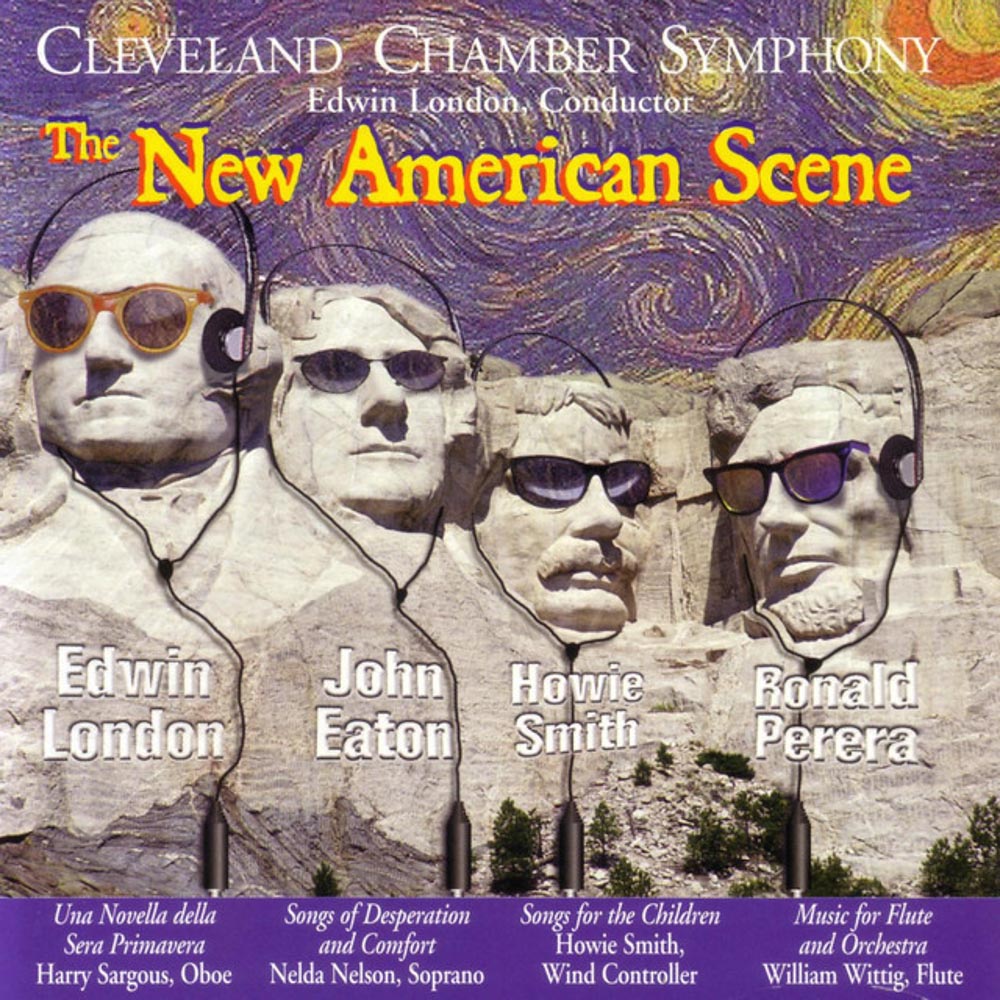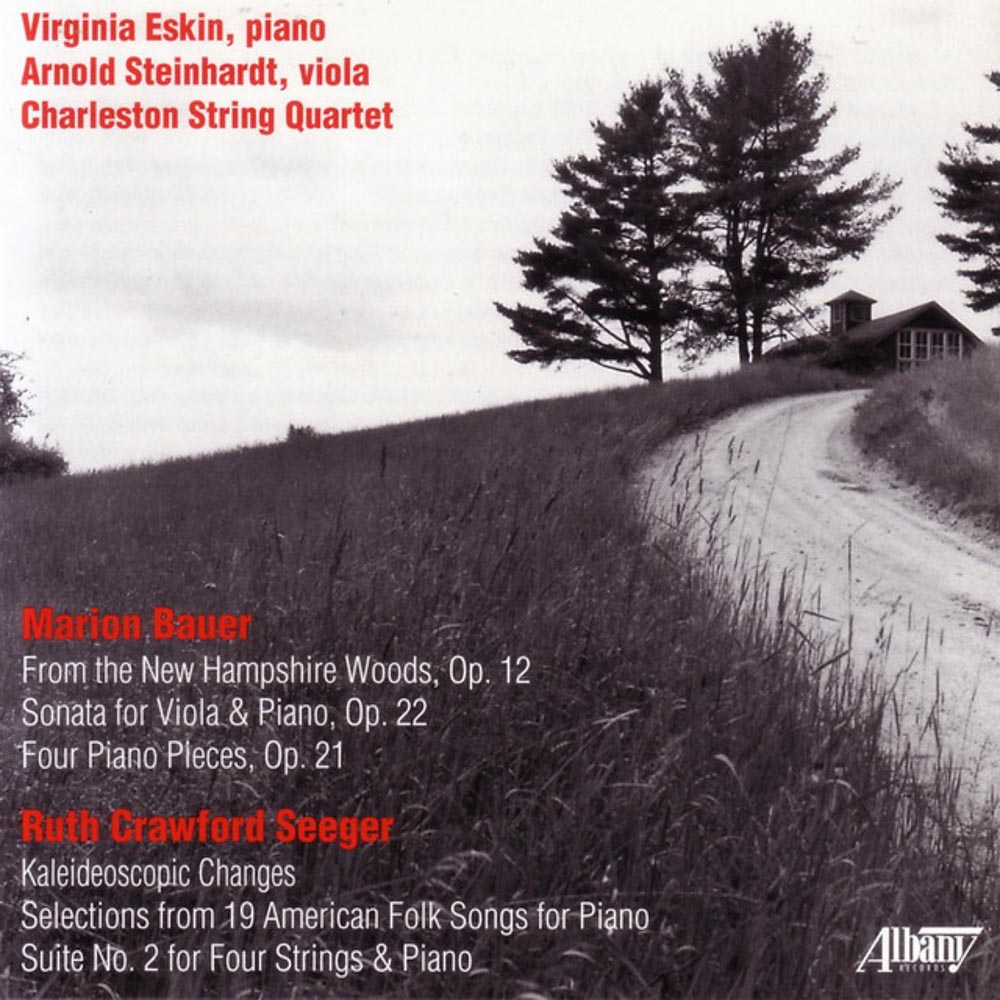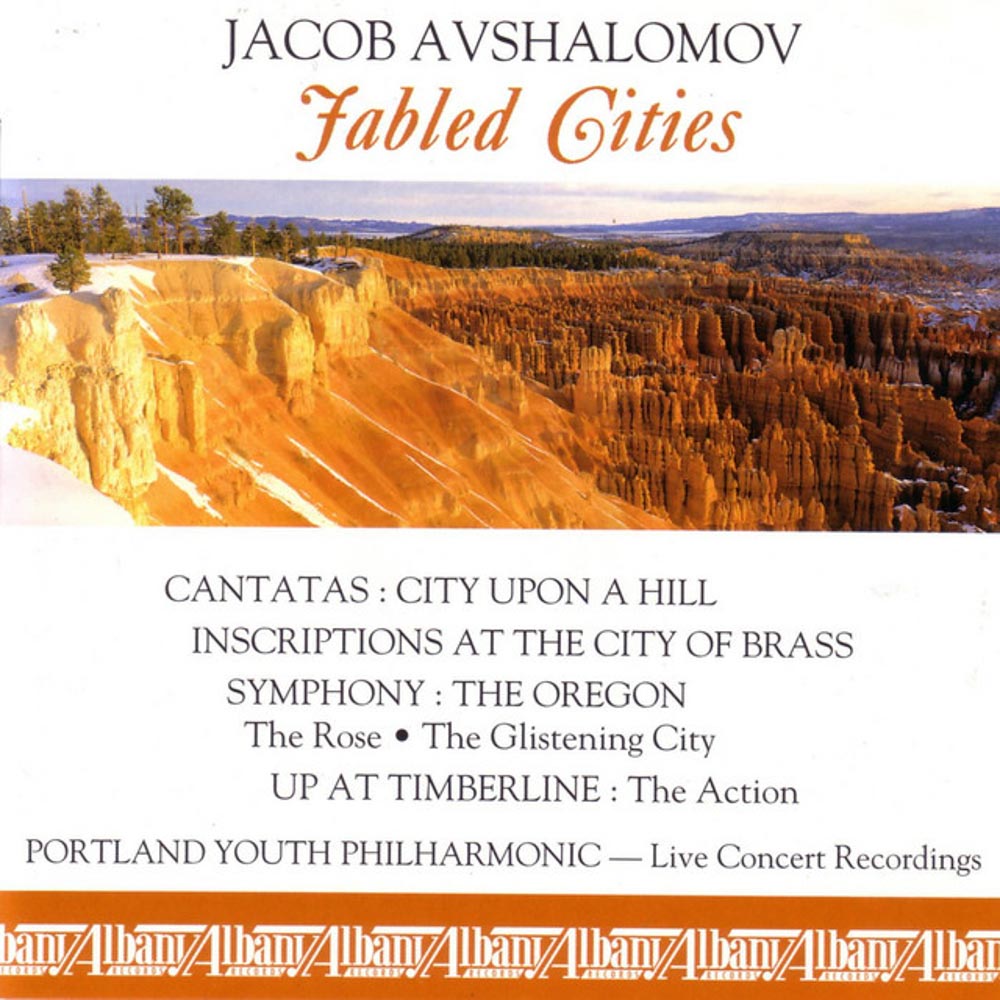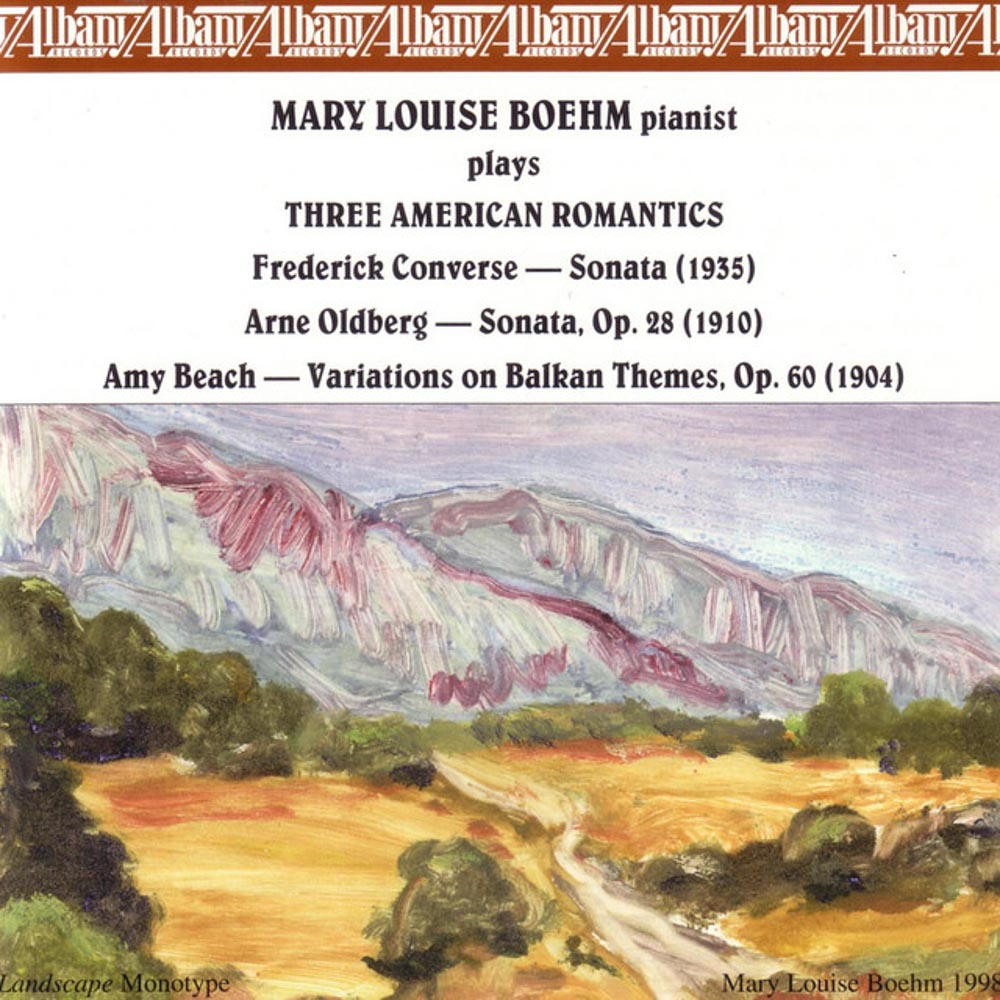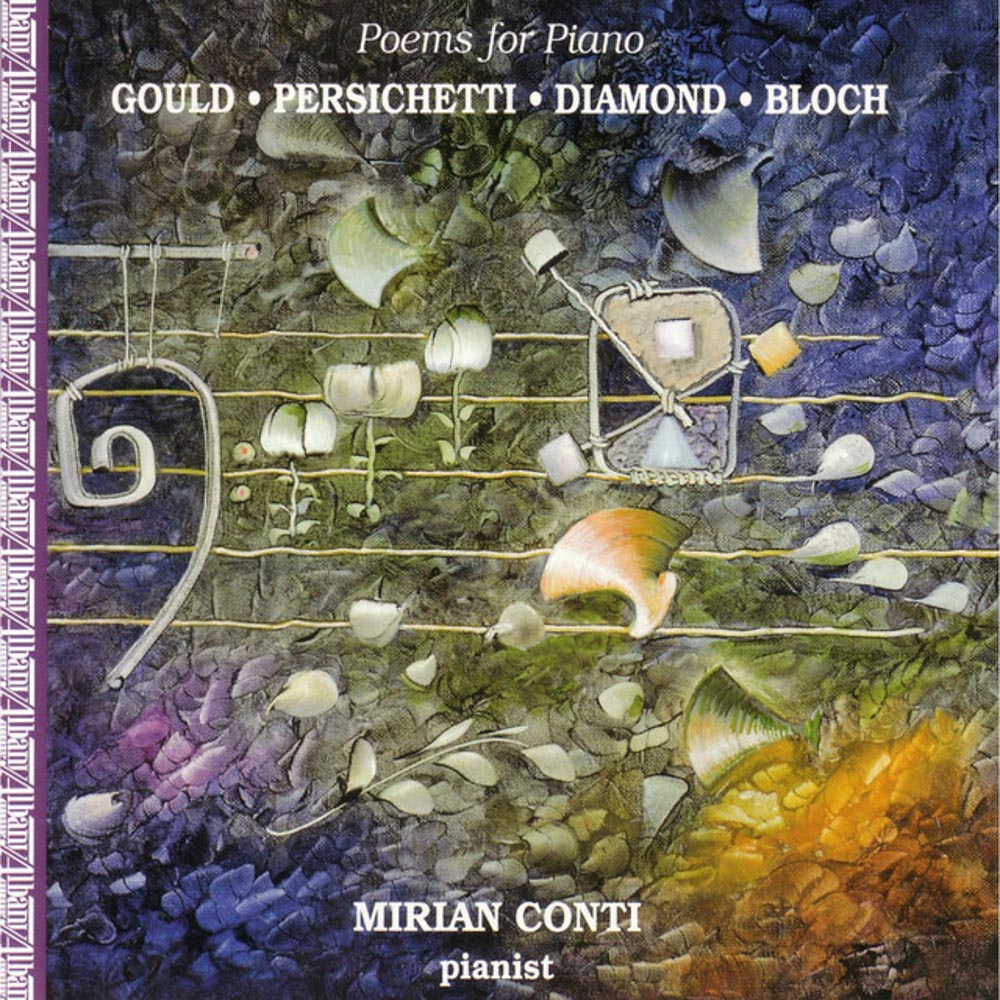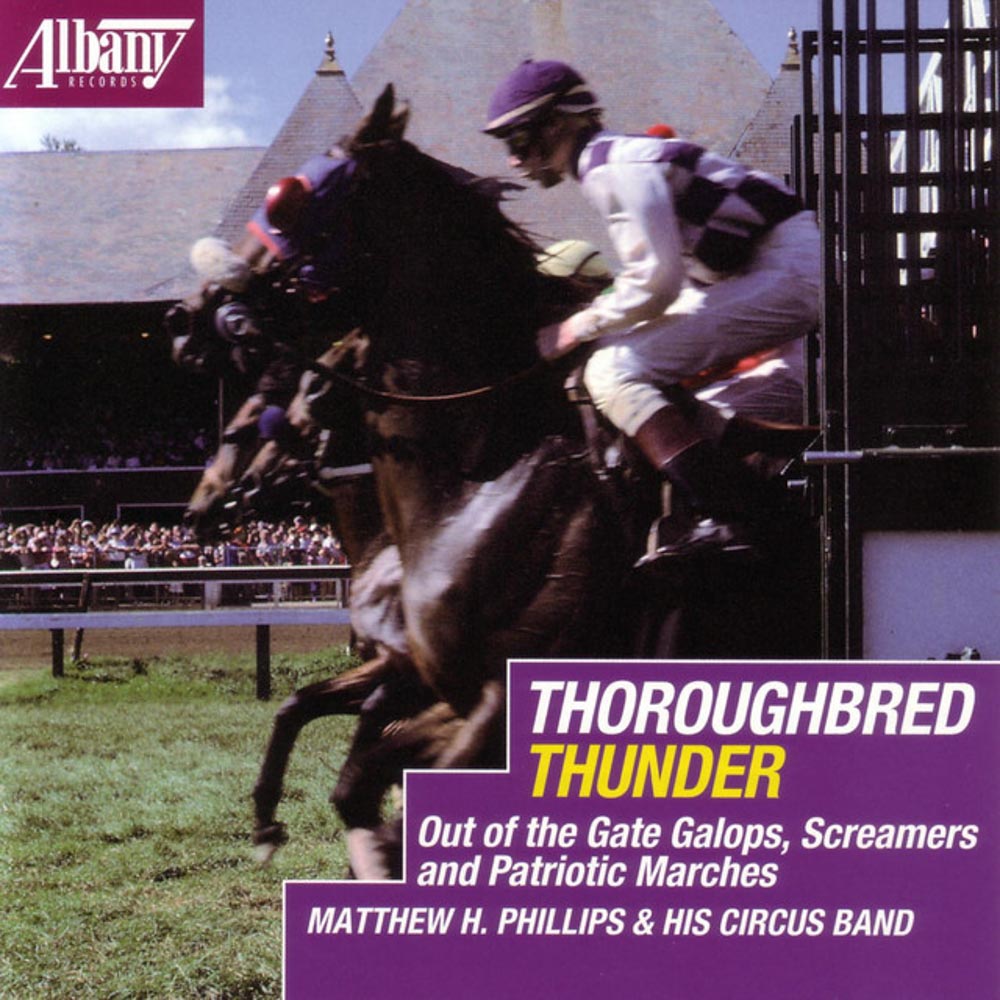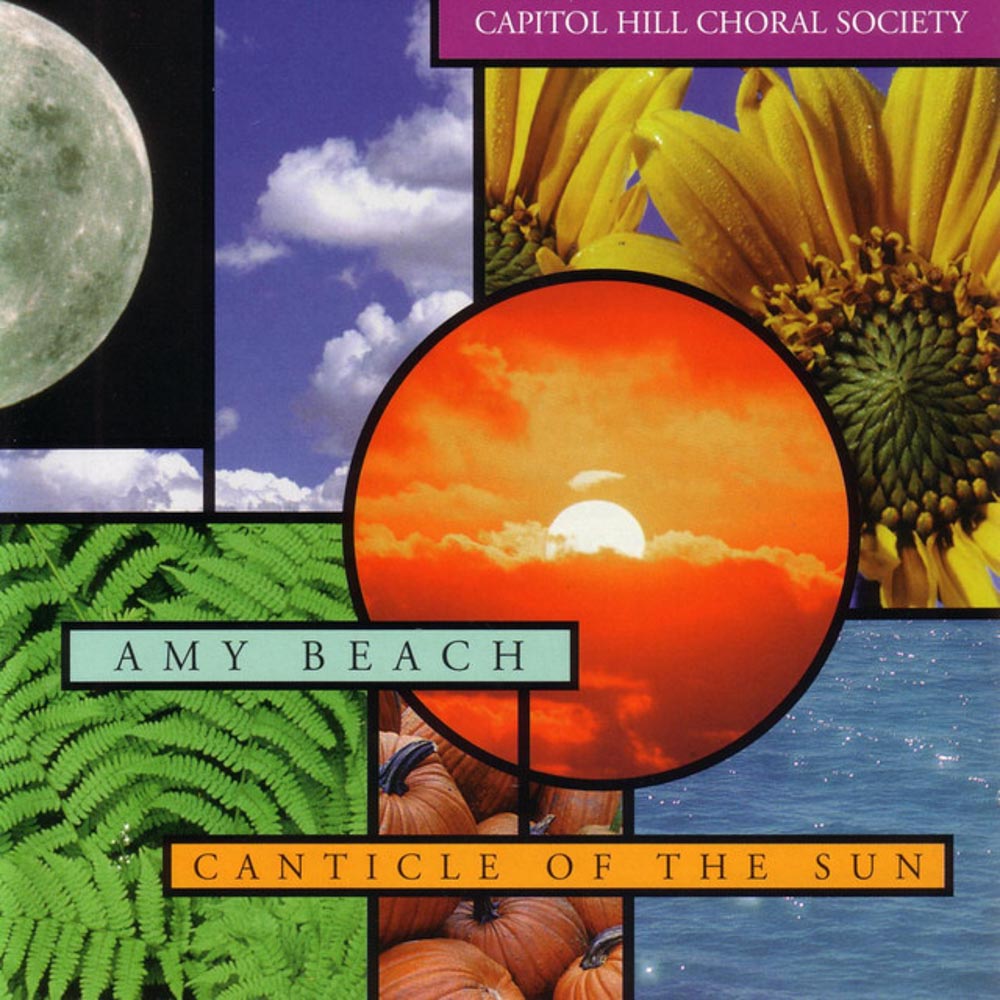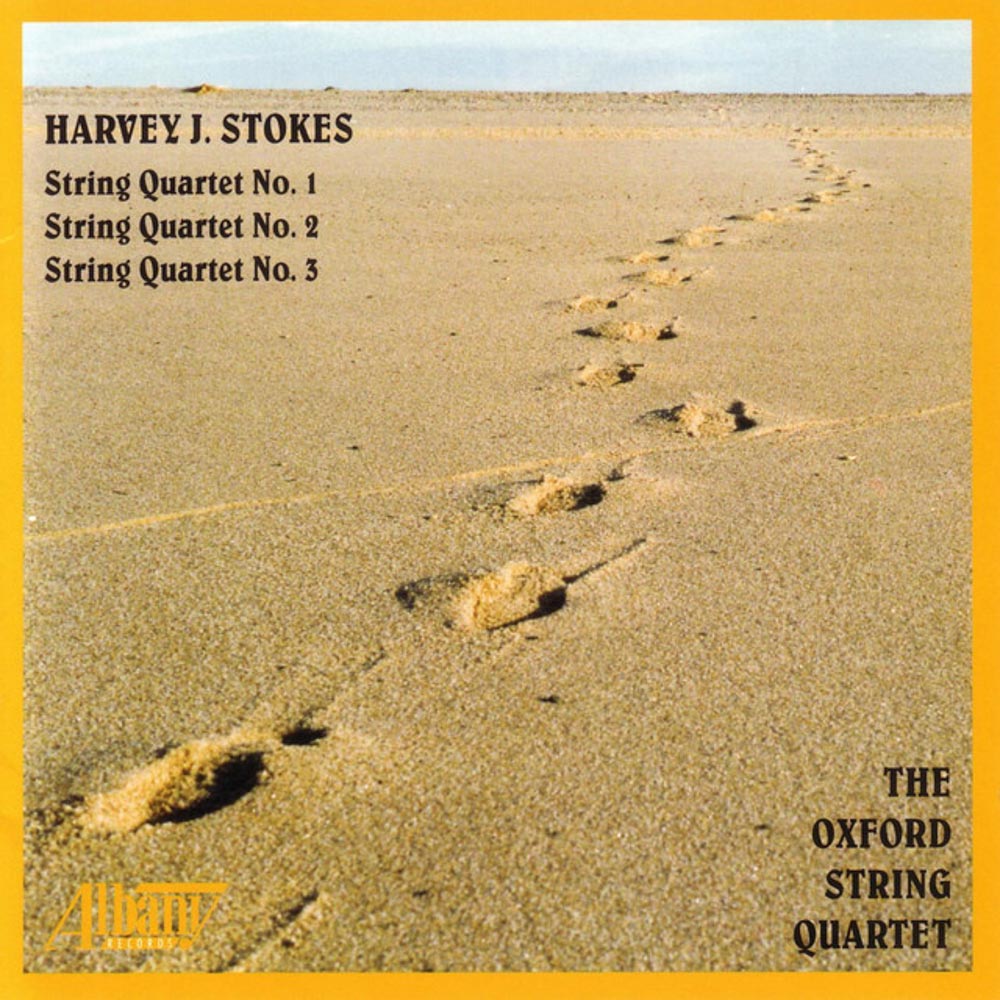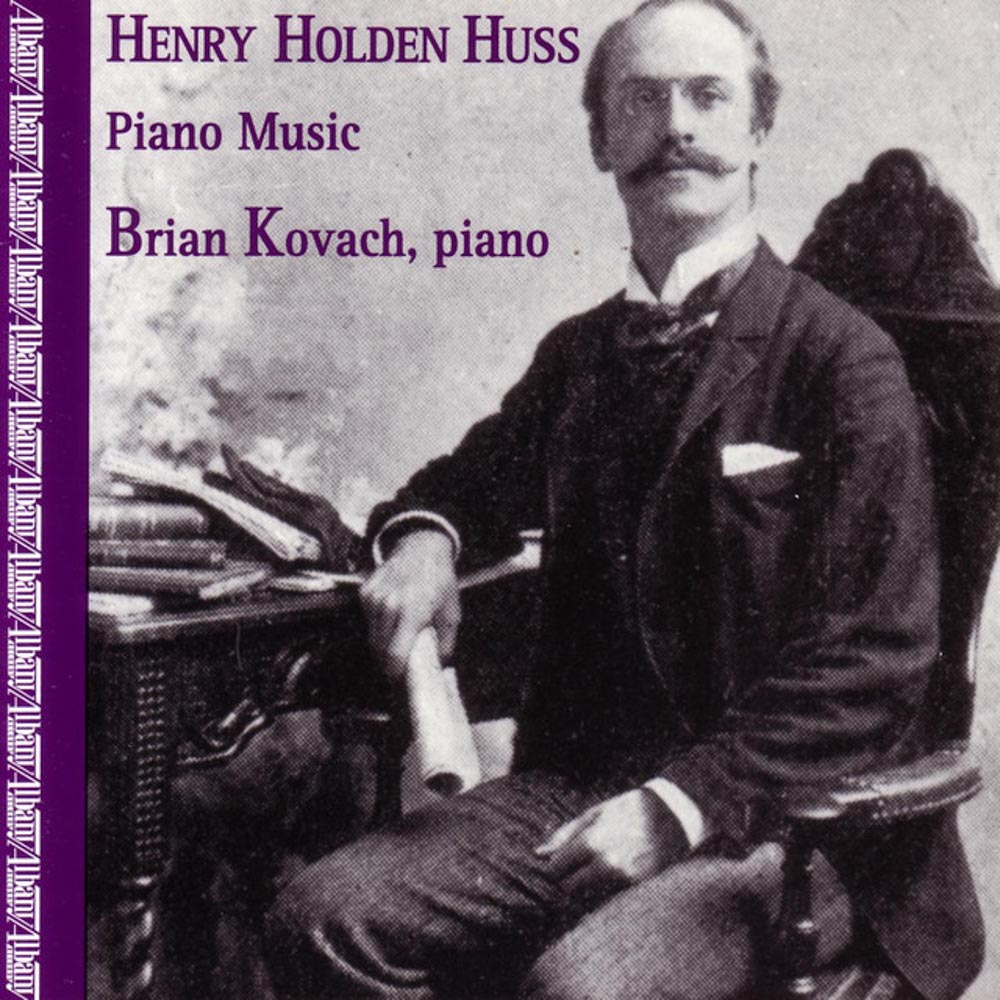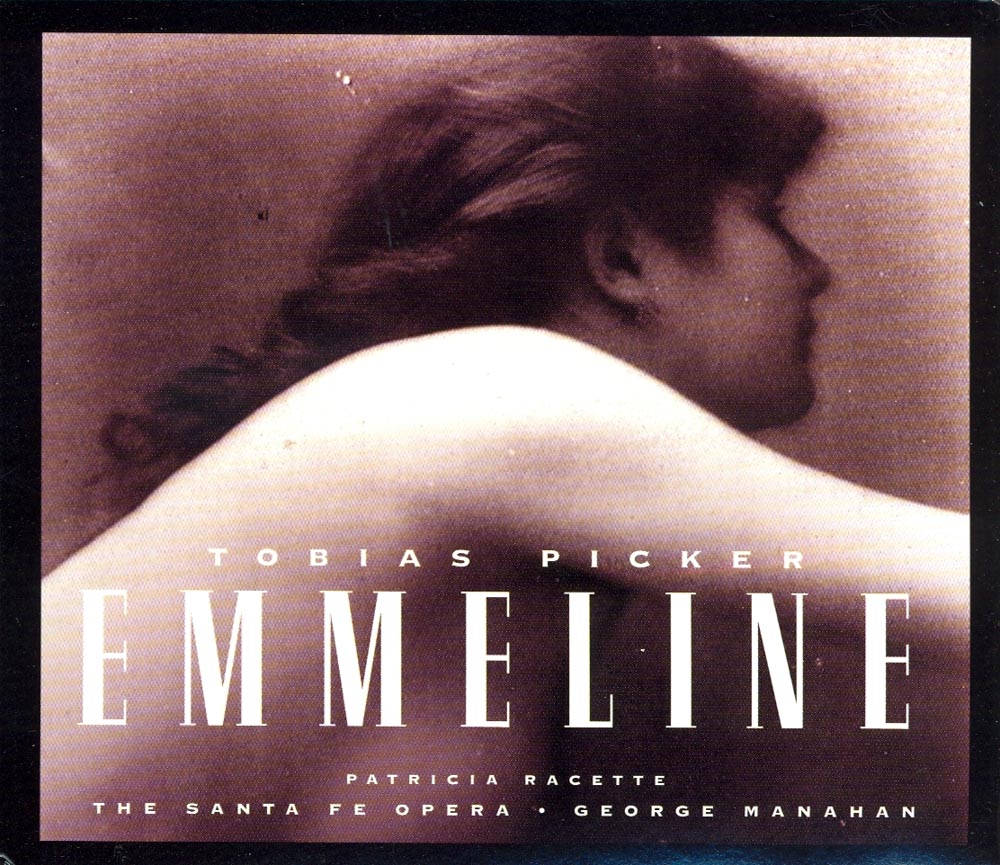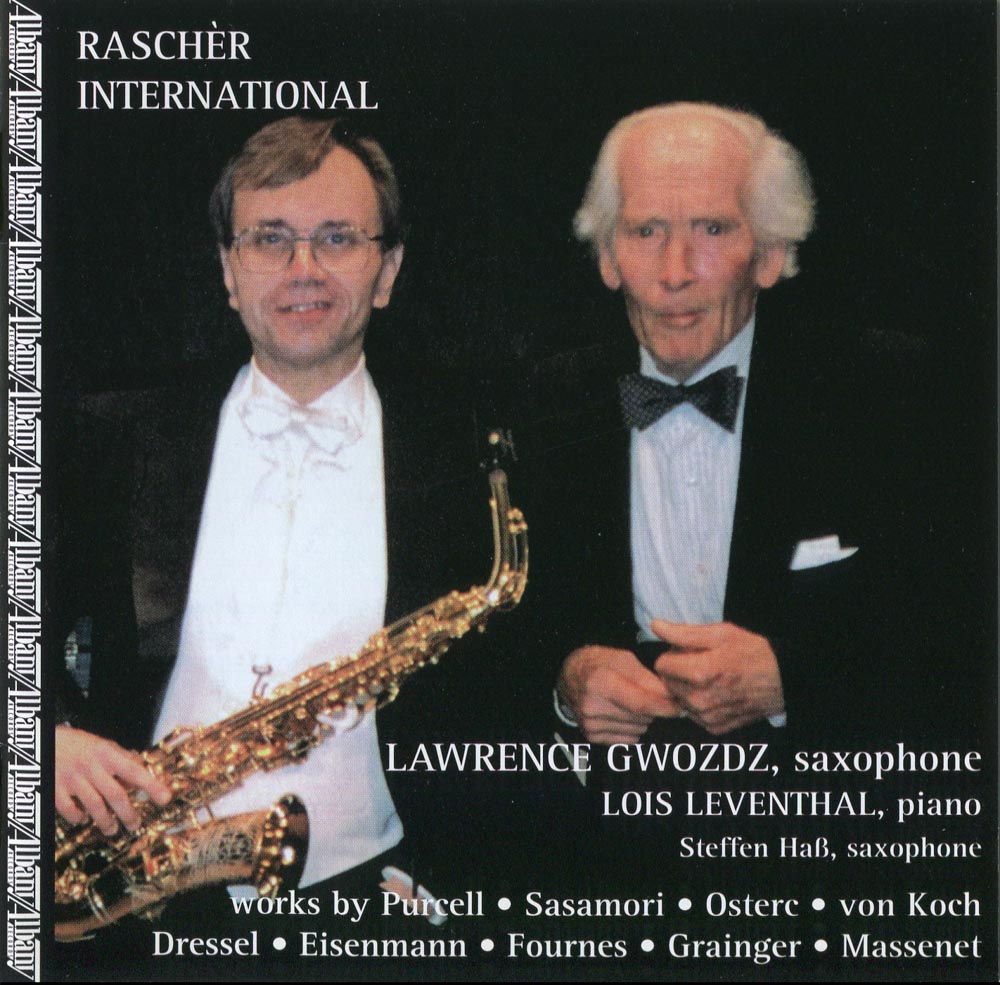Catalog #: TROY0321
Release Date: February 1, 1999OrchestralHere is an interesting package of contemporary music, highlighted by a performance of the Symphony No. 2 by Karel Husa in its world premiere recording. The Bowling Green Philharmonia was founded in 1918 by decree of the university president. It is a combined student-faculty ensemble. In the last several years the orchestra, with conductor Emily Freeman Brown, has established a wider reputation through its performances at the Bowling Green New Music and Art Festival. Don Freund was born in Pittsburgh and studied at Duquesne University and the Eastman School of Music. His teachers included Darius Milhaud, Charles Jones, Wayne Barlow, Warren Benson and Samuel Adler. Chris Theofanidis was born in Dallas, Texas and holds degrees from Yale, Eastman and the University of Houston. His piece On the Edge of the Infinite was composed to commemorate the 700th anniversary of the Grimaldi Empire in Monaco. Sam Adler's Requiescat in Pace is dedicated to the memory of John. F. Kennedy and was written in Dallas during November, 1963, immediately after the assassination. The Canadian composer, Jeffrey Ryan, studied both in his native Canada and at the Cleveland Institute with Donald Erb. Writes Mr. Husa: "Although not written in a classical or romantic style, my symphony nevertheless reflects symphonic form.'' Marilyn Shrude is professor of music composition and director of the MidAmerican Center for Contemporary Music at Bowling Green. Into Light was written at the request of Henry Charles Smith for the World Youth Symphony Orchestra and the opening concert of the 67th season of the Interlochen Arts Camp in 1994.
Catalog #: TROY0277
Release Date: February 1, 1999VocalBrian Israel studied with Ulysses Kay, Robert Palmer, Burrill Phillips and Karel Husa. He graduated from Cornell in 1975. He taught at Syracuse University for 12 years until his untimely death at 35. His In Praise of Practically Nothing for tenor voice and eight-player Chamber ensemble was composed in Syracuse and is a setting of poems by Samuel Hoffenstein. Gerald Levinson is professor of music and former chair of the Department of Music and Dance at Swarthmore College. He studied composition with George Crumb, Richard Wernick and George Rochberg. His work in dark is a setting of poems by Nanine Valen and Robert Lax. David Noon is a graduate of Yale. His teachers have included Milhaud, Charles Jones, Yehudi Wyner and Mario Davidovsky. His Six Chansons were composed when he was a Fulbright Fellow in Warsaw, Poland. They are settings of six poems by the great Chinese master of the late Tang dynasty, Meng Chiao. Noon translated the poems into French. Robert Stern was educated at Eastman. He studied with Louis Mennini, Kent Kennan, Wayne Barlow, Lukas Foss and Howard Hanson. He writes: "Blood and Milk Songs takes its name from Blood and Milk Poems, a volume by Ruth Whitman. The lyric quality of the poetry is mirrored in the music, which is propelled by a strong melodic impulse."
Catalog #: TROY0318
Release Date: January 1, 1999VocalHow proud we are at Albany Records to be able to present to you these two wonderful artists in delightful material which has been newly recorded. Joan Morris and William Bolcom have been concertizing together since 1972. They perform American popular songs from the late 19th century through the 1920s and the 1930s, the latest songs by Leiber and Stoller, and cabaret songs by Bolcom and poet-lyricist Arnold Weinstein. To date they have recorded 19 albums together. Joan Morris was born in Portland, Oregon. She attended Gonzaga University in Spokane prior to scholarship studies at the American Academy of Dramatic Arts in New York. She appeared in several off-Broadway and road productions as well as at many Manhattan nightspots including the Cafe Carlyle and the Waldorf-Astoria's Peacock Alley. Since 1981 she has taught in the musical theater program at the University of Michigan where she produced an original musical in April 1998 based on the life of poet Mina Loy. The Pulitzer Prize winning composer William Bolcom studied at Mills College with Darius Milhaud, the Paris Conservatoire and completed his doctorate at Stanford University. Recent compositions include his wonderful opera McTeague, the Lyric Concerto for Flute and Orchestra for James Galway, his Sixth Symphony for Leonard Slatkin and the National Symphony Orchestra and he has just completed the film score for John Turturro's new movie Illuminata. He is now working on his new opera A View from the Bridge with a libretto by Arthur Miller and Arnold Weinstein which will be premiered in October, 1999 by the Lyric Opera of Chicago. He has taught composition at the University of Michigan since 1973, where he is the Ross Lee Finney Distinguished University Professor of Music.
Catalog #: TROY0310
Release Date: January 1, 1999ChamberKamran Ince is rapidly emerging as one of today's most exciting and original young composers. He was born in Montana to American and Turkish parents. His early musical training was in Turkey at the Ankara and Izmir conservatories. Later he attended the Oberlin Conservatory and the Eastman School of Music, where he earned a Doctorate. Among his teachers were Christopher Rouse and Joseph Schwantner. He is currently a member of the music faculty at the University of Memphis. About Fantasie of a Sudden Turtle the composer writes: "First of all the title has nothing to do with ninja turtles. The contradiction between sudden and turtle is a reflection of my love for contrast and also represents this particular turtle's desire to do a lot of things it cannot. The work consists of a sequence of fantasies, dreams that a turtle might have." About Kac! (Escape from "A") Ince writes: "Kac has the meaning in Turkish of How many? or Escape. The work contains extreme contrasts with sections ranging from complete stasis to raw, savage activity." And finally about Kocekce Ince writes: "Kocekce is the name of a folk dance found in the Black Sea region of Turkey. The music is always very fast with constant irregular meters. It is usually played by the Kemence, a string instrument similar in size to a small violin."
Catalog #: TROY0305
Release Date: January 1, 1999ChamberThe composers of these trios all were born within a ten year span, and were of considerable significance in the first third of the 20th century, when American music was first finding its voice. They are representative of different currents in the musical stream, and the details of their lives and interactions provide insight into the American classical world music world during a fascinating period in our history. Hadley was born in Somerville, Massachusetts and studied with Chadwick at the New England Conservatory. He also studied in Europe with Ludwig Thuille. He was the conductor of the Seattle Symphony, the San Francisco Symphony and the New York Philharmonic. His Piano Trio was composed in 1932 and is in a four movement symphonic form. Virtuosic string writing is evident throughout, as is Hadley's flair for lyrical melody. Daniel Gregory Mason was born in Brookline, Massachusetts into one of this country's most important musical families. His father Henry was one of the founders of the Mason and Hamlin piano company and his grandfather, Lowell was one of the most influential composer and educator of the 19th century. His uncle, William, studied piano with Liszt and played a major role in the development of classical music in this country. He studied with John Knowles Paine at Harvard and in France with Vincent D'Indy. He composed his Sentimental Sketches, Op. 34 in 1935. Bloch was born in Geneva but came to this country in 1916 to teach at the Mannes School. In 1920 he accepted the Directorship of the Cleveland Institute in 1920. He took the same position at the San Francisco Conservatory in 1925. He became an American citizen in 1924. He composed his Three Nocturnes in 1924. Cadman was born in Johnstown, Pennsylvania. He studied music theory with Leo Oehmler and Organ with W.K. Skinner. He became very interested in music with American Indian themes. In 1916, after years of traveling, lecturing on American Indian music, he moved to Los Angeles where he composed operas, film scores and Orchestral works. He was a founder of the Hollywood Bowl and was awarded an honorary doctorate by the University of Southern California in 1926. He composed his Trio in D Major in 1914. It was his very first venture into Chamber music. It demonstrates beautifully his love of melody. This disc fills an important gap in the catalog of early American Chamber music. Detailed and informative program notes.
Catalog #: TROY0303
Release Date: January 1, 1999OrchestralIf you are looking for a disc of all WORLD PREMIERE performances of some very appealing American music, this is the disc for you. Wendell Logan is a composer and saxophonist who was educated at Florida A & M University, the American Conservatory, Southern Illinois University and the University of Iowa. He is presently chairman of the department of jazz studies at Oberlin Conservatory. Roots, Branches, Shapes and Shades (of Green) was commissioned by the Cleveland Chamber Symphony and first performed by them in February, 1991. It was composed for the pianist Neal Creque. Thomas Jefferson Anderson is Fletcher Professor of Music Emeritus at Tufts University in Medford, Massachusetts. He holds degrees from West Virginia State University, Penn State and the University of Iowa. He studied with Scott Huston, Philip Bezanson and Darius Milhaud. Chamber Concerto (Remembrances) was commissioned by the Cleveland Chamber Symphony and premiered in 1988. Leroy Jenkins is a virtuoso violinist, composer, arranger and educator. Born in Chicago, he earned a music degree at Florida A & M University and studied Baroque and classical masters while also developing an interest in improvised music. Under the spell of jazz greats like Charlie Parker, Ornette Coleman and John Coltrane he returned to Chicago and became a charter member of the Association for the Advancement of Creative Musicians, an Organization in which he is still active. Wonder Lust was commissioned by the Cleveland Chamber Symphony and premiered by them in 1988. Dolores White, composer, pianist, and educator, is assistant professor of music at Cuyahoga Community College. She received a bachelor's degree in piano performance from the Oberlin Conservatory and a masters in piano performance from the Cleveland Institute of Music. Her Crystal Gazing was commissioned and premiered by the Cleveland Chamber Symphony in 1994. In the composer's words its single movement explores "the world of crystal making, crystal gazing and the psychic state of mind while crystal gazing." David Baker was born in Indianapolis. He is now professor of music and chairman of the jazz department at Indiana University in Bloomington. He is a virtuoso performer as well as teacher. He received bachelor's and master's degrees from Indiana University. His teachers have included J.J. Johnson, Janos Starker, William Russo, Bernard Heiden and Gunther Schuller. His piece Parallel Planes was also commissioned and premiered by the Cleveland Chamber Symphony.
Catalog #: TROY0319
Release Date: December 1, 1998VocalDreams, American dreams in particular, are basic to our lives. Whether it is the desire to write the perfect love song to use as a serenade or the need to break away from the everyday, humdrum world and escape into the land of rhythm, these songs make those dreams immediate and very real. Every song in this collection speaks to the heart, as well as to the mind, of the singer and the listener. American in content and context, American voices sing these songs best. Vocal music written by young American composers is coming into its own here at the end of this century and more singers are including songs by American songwriters than ever before in their recitals and recordings. Many new works are being commissioned by singers every year. In this recording Jean Danton presents an overview of the heart of American song writing for the last 150 years. Beautiful Dreamer, for example, has the same poignant soul as All the Things You Are. That particular Kern song is as complex, musically, as anything by Charles Ives. Gershwin's and Carpenter's musicianship is the equal of Copland's. Romberg and Ganz, for all their European background, made their American music as truly native in appeal as Bernstein or Joplin. Carl Davis' song seems to sum up the whole spectrum of song writing on its own terms. There is much to love in this music; all songs, sad, sweet, melancholy or raucous, are about love and about dreams. Heart Songs really are American Dreams.
Catalog #: TROY0317
Release Date: December 1, 1998InstrumentalAllen Shawn grew up in New York City and started composing music at the age of ten. He received his B.A. from Harvard where he studied with Leon Kirchner and Earl Kim, spent two years in Paris where he studied with Nadia Boulanger, and received his M.A. in music from Columbia University where he studied with Jack Beeson. Until 1985, he lived in New York City where he taught at the Mannes School and the Elizabeth Seeger School. He also worked as a pianist in pit orchestras on Broadway and at the New York Shakespeare Festival. Since 1985, he has lived in Vermont where he is on the faculty of Bennington College where he teaches composition. The bulk of his output is Chamber and piano music. He has also composed orchestral works, two operas with libretti by his brother, playwright Wallace Shawn, much incidental music for the theater and music for the film "My Dinner with Andre."
Catalog #: TROY0314
Release Date: November 1, 1998ChoralThe big draw for this disc is the fact that Robert J. Lurtsema from WGBH' s Morning Pro Musica does the narration. For 27 years he has been known to classical music lovers everywhere. Ronald Perera was born in Boston and studied with Leon Kirchner and Randall Thompson. Today he is Elsie Irwin Sweeney Professor at Smith College. The text of The Outermost House is taken from Henry Beston's A Year of Life on the Great Beach of Cape Cod written in 1928. Though the book produced only modest initial sales, its readership continued to grow, and after World War II it began to achieve something of a cult status. Rachel Carson said that it was the only book that influenced her writing. Today it is generally acknowledged as a classic of American nature writing, and many of Beston's words have become part of the modern environmental credo: "The world today is sick to its thin blood for lack of elemental things." "Creation is here and now." "Touch the earth, love the earth, honor the earth." Ronald Perera's The Outermost House received its premiere on November 16, 1991 with the Chatham Chorale. Canticle of the Sun by Saint Francis of Assisi was commissioned for the one hundredth anniversary in 1984 of Groton School, a venerable independent secondary school in Massachusetts with a religious affiliation symbolized by a splendid gothic chapel in which the piece was premiered on April 21, 1985.
Catalog #: TROY0309
Release Date: December 1, 1998Wind EnsembleThe music of David Maslanka is one of the consistent best sellers on Albany Records. About the music on this disc, the composer writes: "My Symphony No. 2 was commissioned by the Big Ten Band Directors Association and was dedicated to my teacher and friend, H. Owen Reed, on the occasion of his 75th birthday. It premiered in 1987 at the College Band Directors National Association convention at Northwestern University with John P. Paynter conducting. The symphony is in three movements. Laudamus Te was written for and dedicated to the Mount St. Charles Academy Symphonic Band of Woonsocket, Rhode Island, Marc Blanchette, conductor. The words "laudamus te" (we praise you) are form the Gloria of the Latin Mass. The idea has been brought forward over time that the true function of the human race is to sing praise. Laudamus Te is a piece in which the voice of praise arises out of darkness. Hell's Gate (1996) was commissioned by the Hellgate High School Symphony Band, John H. Combs, conductor. The title "Hell's Gate" started as a simple twist on the name "Hellgate." "Hellgate" is the name given to a section of Missoula, Montana where the Clark Fork River flows through a mountain pass (Maslanka lives on a ranch in Montana). Local Indians suffered many surprise attacks by rival tribes at this place, leading French settlers to give it the name "Hells Gate." Thus the title for my piece."
Catalog #: TROY0306
Release Date: December 1, 1998InstrumentalThe wonderful draw of this album, besides the music of Samuel Adler is the great artistry of the various musicians involved in this project. What talent lies in American Orchestras! This disc proves it beyond question. Samuel Adler was born in Mannheim, Germany in 1928 and came to the United States in 1939. He holds a B.M. from Boston University and an M.A. from Harvard University. During his tenure in the U.S. Army, he founded and conducted the Seventh Army Symphony Orchestra and because of the Orchestra's great psychological and musical impact on the European cultural scene, he was awarded the Army's Medal of Honor. His catalogue includes more than 400 published works in all media. He has also published three books. From 1966 to 1994 he was professor of composition at the Eastman School. He was the chairman of the department since 1974. He is currently on the faculty of the Juilliard School of Music. The pieces on this disc were all composed at the request of and for all the friends Dr. Adler has made in America's Orchestras over the years.
Catalog #: TROY0312
Release Date: November 1, 1998OrchestralJames Kimo Williams is a versatile composer who has written both serious and commercial works. He is a faculty member of Columbia College in Chicago and writes the following: "Fanfare for Life was commissioned by AT&T and premiered May 6, 1994 by the Chicago Sinfonietta at Orchestra Hall in Chicago under the baton of Paul Freeman. I composed this work in direct response to the outgrowth of gang violence during that same year." Richard J. Rendleman, Jr. was born in 1949 in Salisbury, North Carolina and holds a Ph.D. in Business Administration from the University of North Carolina at Chapel Hill where he currently serves as Professor of Finance. At age 32, he began studying with the Pulitzer Prize winning composer, Robert Ward. As a result has written a number of works for piano, chorus, Chamber ensemble and Orchestra. "October 9, 1943 serves as the second movement of my First Symphony, completed in 1997. The music is based on a poem of the same title by my grandfather's cousin, Margaret Proctor Wood. The Chamber version of Runagate, Runagate was first performed at the National Black Arts Festival in Atlanta in 1990. Subsequently, the Orchestral version was premiered by the Savannah Symphony in 1994 with William Brown for whom the work was written. Wendel Logan is on the faculty of Oberlin College. "The text and title of my composition are based on Robert Hayden's collage poem "Runagate, Runagate," which was taken from the collection Angle of Ascent (1975). Richard Yardumian's (1917-1985) Chorale-Prelude Veni, Sancte Spiritus was premiered by Eugene Ormandy and the Philadelphia Orchestra on April 3, 1959 and performed over 100 times during his tenure. Peter Saltzman has written extensively for dance and theatre groups as well as for Orchestra. He is very active in the Chicago musical scene and writes the following: "I wrote Walls during a three week period in December, 1995 and January, 1996. It was commissioned by Kevin Iega Jeff, choreographer of the Dallas Black Dance Theatre, which premiered a synthesized version of the work in February, 1996."
Catalog #: TROY0308
Release Date: November 1, 1998OrchestralAlison Young, the flutist on this recording, writes: "Two years ago, conductor Charles Anthony Johnson approached me with the idea of producing a recording of flute concertos together. We decided to concentrate on American music, exploring new territory by locating works that had never been recorded or were currently unavailable on CD. Our decision to record the particular four works on this recording was based on the music's unique American characteristics, defined by their compelling individualism. They are products of this century, but their composers chose to use more traditional styles, utilizing familiar rhythmic patterns and tuneful melodies. It was a sad discovery for us that these exceptional pieces were not only unavailable on recordings, but had also seen little performance exposure. As I began studying and practicing, I realized that this was a great injustice to the composers themselves as well as a loss to musical audiences. The four works on this CD represent some of the finest flute music written in this country." Alison Young graduated with a Master of Music degree from the Cleveland Institute of Music. She also holds a degree from the University of Southern California. Currently Principal Flute of the Houston Ballet Orchestra, she has performed and recorded as Principal Flute of the Atlanta Symphony Orchestra, the Houston Grand Opera, and the Memphis and Toledo Symphonies.
Catalog #: TROY0307
Release Date: November 1, 1998ChoralCONCORA - Connecticut Choral Artists, was founded in 1974 by Richard M. Coffey. CONCORA'S mission is to "perpetuate and perform with excellence choral music of the highest quality for the broadest possible audience." Since its founding, the all-professional chorus has built an extraordinary reputation for artistic excellence throughout New England. Mr. Coffey writes: "The challenge in preparing a recording of choral works of Ned Rorem is not in the selection of what to include but in the perverse necessity of selecting what to omit. For over a year I pored over Rorem scores, both published and unpublished, corresponded with the composer who had a few modestly proffered suggestions, and sat at the piano for many a happy hour playing and singing a treasury of anthems, canticles, motets, choral hymns, and choral songs. For every work presented here there is another, equally beautiful, awaiting its turn before the microphone. Ned Rorem's love for words is manifest well beyond his popular diaries and prose. He selects great texts and then wraps them in fine melodies, tunes which ennoble and illuminate. After only a few listenings to Love Divine or Come, Pure Hearts one may be tempted (don't resist) to whistle and hum them quite spontaneously. This disc is presented as a tribute to Ned Rorem on the occasion of his 75th birthday (October 23, 1998). The music in this collection is an eclectic grouping of works dating from 1955 through 1988 including pieces for a cappella choir, as well as others accompanied by Organ or piano, with texts (both prose and poetry) from religious, scriptural, and secular sources."
Catalog #: TROY0313
Release Date: October 1, 1998OperaThe Kona Coffee Cantata originated, appropriately enough, over coffee and conversation in 1981 between composer Jerre Tanner and Christine Jones, a classical music lover and co-owner of The Coffee Cantata, a coffee shop in Kailua-Kona on Hawaii Island. Jones suggested that Tanner write a companion piece to Bach's Coffee Cantata. Tanner and his librettist agreed to create a Baroque Hawaiian Style for the new work. Says Tanner: "We would combine Baroque musical traditions with Hawaiian musical traditions as seamlessly as possible looking for a common ground between the two so that our audience would accept this cross-cultural hybrid." The listener can hear recitativo secco, arias with instrumental obbligatos, cabalettas displaying vocal pyrotechnics, fugues, chorale preludes, florid ornamentation and those sturdy Baroque walking bass lines. On the Hawaiian side, there are hints of ancient chant and hula rhythms sounded by the ipu hula - a traditional drum-like instrument used for the dance. The rest of the Orchestra is made up of strings, flute and basso continuo, the same instrumentation as Bach's Coffee Cantata. As well, just like the Bach work, Tanner's Cantata uses three characters sung by a soprano, tenor and bass. The work received its premiere in a somewhat abbreviated version by the Uptown Opera at Lindaman's Gourmet-to-Go Restaurant in Spokane, Washington on November 13, 1986. Jerre Tanner is the composer of Boy With Goldfish which is also available on Albany TROY353.
Catalog #: TROY0304
Release Date: October 1, 1998OrchestralAs founder and president (1974-1995) of Meet The Composer, an Organization dedicated to the creation, performance, and recording of music by American composers, John Duffy initiated countless programs to advance American music and to aid American composers. But there is another side to John Duffy. He has composed more than 300 works for symphony Orchestra, theater, television and film. He grew up in the Bronx, one of 14 children of Irish immigrant parents. He studied with Copland, Cowell, Dallapiccola and Solomon Rosowsky whom he credits with insisting uncompromisingly on learning the craft of music composition and developing the discipline and patience necessary to the art. The Heritage music on this disc is a reissue of the music on the old ASV disc which has been long unavailable. The performance of the Symphony No. 1 is a new one and is different from the one that appears on Koss Classics. Heritage, Fanfare and Chorale, Heritage Suite for Orchestra and Heritage Symphonic Dances have all been drawn by Mr. Duffy from the score he composed for the nine-hour PBS series Heritage: Civilization and the Jews. This wonderful, stirring music earned for Mr. Duffy an Emmy. The Chicago Tribune called the music "haunting, memorable and brilliant." The Utah Chapter of the Sierra Club, Gibbs Smith, president, commissioned Symphony No. 1 in order to draw attention to the endangered, pristine wilderness lands of southern Utah. The score is dedicated to Mr. Smith and the Sierra Club. The Symphony was premiered by Paul Connelly and the Orchestra of St. Luke's at Avery Fisher Hall in New York City on November 29, 1989. Mr. Duffy's tuneful, energetic music should find a large and welcome audience.
Catalog #: TROY0240
Release Date: October 1, 1998VocalHenry Cowell wrote songs for the half century spanning 1914-1964. They constitute a central part of his compositional profile and there are more than 180 of them out of his 966 known compositions. His songs are a vital, if sadly unknown, part of the rich history which is the American art song and in them, Cowell used some of his most forward looking and experimental ideas. His songs clearly delineate the several periods of his stylistic evolution - the naive, youthful works, the early avant-garde and "ultra modernist" works, the folk and modally-influenced music, and the late works which synthesize all these earlier styles. Most of Cowell's songs, however, have remained under-performed and virtually unknown, for they exist only as manuscripts in the Library of Congress and the New York Public Library. To date only sixteen of Cowell's songs for voice and piano have been published. During his lifetime, his songs were premiered by many of the finest singers of the day including Roland Hayes, Eva Gauthier, Radiana Pazmor, Charles Holland and Theodor Uppman. Most often, he composed single songs but there are a few exceptions including the sets by Catherine Riegger, Mother Goose, Padraic Colum and Langston Hughes recorded here. As editor for many years of the ground-breaking New Music Editions, Cowell selflessly advanced the songs of many other composers including Ives, Copland, Charles Seeger, Vivian Fine, Paul Bowles, Elie Siegmeister, Ernst Bacon, Leo Ornstein, Otto Luening and Ben Weber. In all this time, he only published two of his own songs.
Catalog #: TROY0300
Release Date: September 1, 1998OrchestralIt is the intention of this disc to change dramatically music lover’s opinions of the American composer Morton Gould. For those who know him as the composer of “light” music; American Salute, The American Symphonette, The Latin-American Symphonette, or as an arranger of other composer’s music, or just as a fine conductor – get ready. There is no doubt in this listener’s mind that StringMusic ranks with the greatest string music written in this century and yes I am including Elgar, Vaughan-Williams and Britten. In fact StringMusic is a masterpiece, richly deserving of the Pulitzer Prize for music it won in 1995. And the Piano Concerto composed when he was just in his early twenties. Sure, there are hints of Shostakovich, but the music is Gould, right from the start, all Gould. Showpiece was commissioned by Columbia Records. It was intended to show off the modern Orchestra and how well it could be captured in recording with the best of the Columbia engineers’ talent. And while Ormandy and the Philadelphia, for whom the work was written, recorded it, the work was never approved for release. David Alan Miller feels it was because the music is so fiendishly difficult. The Orchestra simply did not have enough rehearsal time. This disc should find a audience because none of the works has ever been available before in any format.
Catalog #: TROY0298
Release Date: September 1, 1998OrchestralRonald Perera is Professor of Music at Smith College. He studied with Leon Kirchner, Randall Thompson and Mario Davidovsky. His Music for Flute and Orchestra was composed for William Wittig who performs it on this disc and who is also the principal flute (since 1970) of the Springfield, Mass. Symphony Orchestra. Howie Smith is a virtuoso saxophonist, composer and jazz musician. As a performer he has worked with everyone from Aretha Franklin and Elvis Presley to Luciano Berio and John Cage. About his Song for the Children he writes: "It is a song for the children of Argentina, El Salvador, Lebanon, Nicaragua, South Africa, and so many other places where they seem to have been forgotten." The work is scored for alto saxophone and WX7 MIDI Wind Controller, strings, 2 DX synthesizers and a pipe Organ. The Italian title of Edwin London's one movement work una novella della sera primavera translates as "A novel of the spring evening." The solo oboe is the central character in the "novel." In a further whimsical program note the composer suggests that his "music novel" might be construed as "the make-believe quintessence of oboe (a rebel dude) coming forward from ashes (a rubble deed!) to meet the challenge offered by anthropomorphic dialectics: vicissitudes in search of a character. A double read? Why not." In The London Financial Times Andrew Porter called John Eaton "the most interesting opera composer writing in America today." Eaton's Songs of Desperation and Comfort were composed during a residency the composer spent in the Villa Serbelloni at Bellagio, Italy. The premiere of this music by the Cleveland Chamber Symphony was the 100th world premiere composition presented by this Organization. It is scored for mezzo-soprano and Chamber Orchestra.
Catalog #: TROY0297
Release Date: September 1, 1998ChamberMarion Bauer and Ruth Crawford Seeger began their life-long friendship in the summer of 1929, when both enjoyed privileged living at the MacDowell Colony in Peterborough, New Hampshire - a haven for American artists since 1907. At a time when women in music had to face down Victorian stereotypes of dilettantism and sentimentality, the MacDowell Colony provided "a room of one's own." A Peterborough regular, Bauer came for her first visit in 1917. Within two days of arriving for what would be her only stay there, Crawford wrote how it was "glorious to be working again...I never knew the moon and stars could come inside me so." Considering their historical reputations, few people would suspect the meeting points between these two composers - Bauer, representing what Carol Oja in her forthcoming book calls the "forgotten vanguard," and Crawford, known today as a pivotal figure in the radical "ultra-modern" movement. But back then, both believed strongly in the manifest destiny of a similar kind of modernism: both spent the 1920s exploring frontiers of harmony; both greatly admired Scriabin, taking his mystical impressionism as their starting point; and both were influenced by transcendentalist aesthetics. After hearing some of Bauer's piano preludes, Crawford recorded her impressions in her diary: "I am bewildered by the strangeness of the experience, by our affinities. Our manner of building, our feeling very strongly the spirit of our work, our strengths and weaknesses - in all these, though we are individuals, yet we are very close. Though we have only just met, yet our spirits have been friends for years." And now their musics are joined on this beautifully performed new disc. There is no greater proponent of this music than Virginia Eskin, a proven, superb American artist.
Catalog #: TROY0296
Release Date: September 1, 1998OrchestralCity Upon a Hill and Inscriptions at the City of Brass are both for Chorus and Orchestra. City Upon a Hill was commissioned by the Boston Winterfest of 1965 where it received a terrible performance. Ten years later during the Bicentennial celebrations it was performed with the Portland Youth Orchestra and the Governor of Oregon as the speaker. The reviewer for the Portland Oregonian called it a work of "moving beauty." Inscriptions At the City of Brass was premiered by the Schola Cantorum of New York under Hugh Ross, at the Metropolitan Museum of Art in 1957, with Vera Zorina as Sheherezad. Avshalomov began work on his Symphony: The Oregon in Portland in 1960 and it was completed there in 1962. Between these dates much of the music was written in Munich where the composer was on sabbatical. The premiere was given by the Portland Youth Symphony. On this disc we hear only the third and fourth movements. Up at Timberline has an unusual history. It was commissioned by the Friends of Timberline to note the Lodge's 50th anniversary. Situated on the slopes of magnificent Mt. Hood, the Lodge is one of the most enduring projects of the WPA (Works Progress Administration). It was dedicated in 1937 by President Roosevelt. It was premiered in 1987 at the Lodge.
Catalog #: TROY0293
Release Date: September 1, 1998InstrumentalThis disc contains three wonderful American works for piano, two of which, the Converse and the Oldberg, are receiving their world premiere performances here. The least known figure on the disc has to be Arne Oldberg. Who was he? He was the teacher of Howard Hanson for starters. He was born and lived in the Chicago area. His father, Oscar Oldberg, founded in 1886 and was the first Dean of the School of Pharmacy at Northwestern University. His son, Dr. Eric Oldberg, became President of both of the Chicago Board of Health and the Orchestral Association, the governing body of the Chicago Symphony Orchestra. Arne was appointed Professor of Music at Northwestern University in 1899, and later Dean of the graduate school, a position he held until he retired in 1941. Mary Louise Boehm writes: "I met Mr. Oldberg after he had retired. I premiered his Third Piano Concerto with the Chicago Civic Orchestra. Oldberg himself played for me his Piano Sonata which is recorded here. He also coached me, explaining his ideas about the piece to me." Frederick Shepherd Converse never had to worry about money as he was born into a prominent Boston family. He studied with John Knowles Paine at Harvard and also George Whitefield Chadwick. In 1896, he went to Munich where he studied with Joseph Rheinberger. For awhile, he taught at the New England Conservatory and Harvard, but he soon retired to his estate in Westwood, Massachusetts, near Boston, where he lived the rest of his life. Nothing much needs to be said as way of introduction for Amy Beach except to say that Mary Louise Boehm is an expert in the performance of her music. Her recording of the Beach Piano Concerto is still considered definitive.
Catalog #: TROY0299
Release Date: August 1, 1998InstrumentalThe Argentine pianist Mirian Conti enjoys a growing reputation as a musician. Stylistically assured in a wide range of repertoire, Ms. Conti is considered a leading exponent of Spanish music; and her rare ability to communicate passion and excitement when playing contemporary scores has won the admiration of many leading American and Argentine composers, including those included on this disc. She began her musical education in Buenos Aires and completed it at Juilliard in New York. Morton Gould's Pieces of China could best be described as an American's impressions of China. They were first performed in Madison Square Garden for an international event. Volumes 1 and 2 of Persichetti's Poems for Piano were composed in 1947 and the third volume in 1981. The titles of each of the sixteen character pieces are drawn from single lines of various poems, each piece reflects the single line of poetry rather than the poem as a whole. These lines are printed in the booklet. It is most interesting to note that David Diamond was so impressed with Mirian Conti's playing when he heard her at Juilliard that he dedicated his Sonatina No. 2 to her. His earlier Sonatina No. 1 was dedicated to the poet Alfred Kreymborg. Poems of the Sea is one of Ernst Bloch's most often performed piano pieces. A very impressionistic piece, the three movements are: "Waves," "Chanty," and "At Sea."
Catalog #: TROY0294
Release Date: August 1, 1998Wind EnsembleFor many years, here at Albany Records, we have had the idea of doing a recording of American music that would tie in to horse racing - specifically the August season at Saratoga. Thoroughbred Thunder is the result and it has an appeal and charm well beyond its initial idea. Obviously, all of the selections have something to do with horses and racing, so any place that has a race track, or a racing audience will find this disc most entertaining. It should be a best seller, not only at Saratoga, but at Churchill Downs, Belmont and any other place there is a track. What about the music? It does sound like what you would hear at a circus. It has a jolly, albeit, repetitive nature to it, but this will only make the disc appeal to a wide variety of listeners: the listener for whom the composers on this disc they have only read about, never having heard a note of their music to the listener who is looking for something just as entertaining and charming as the title suggests.
Catalog #: TROY0291
Release Date: August 1, 1998InstrumentalPantcho Vladigerov has justifiably earned the symbolic title of Grand Master of the Bulgarian school of composing. It fell upon Vladigerov to become the first recognized representative and brilliant herald of the young Bulgarian art of composing that was trying to find its own place in the world of music after 500 years of being yoked by the Ottoman Empire. His enormous gift and the wide spectrum of his creations gave Bulgarian music what the other great musical nations took pride in long before his star began to rise. Vladigerov, known in the West as the teacher of Alexis Weissenberg, was a composer-pianist with electrifying technique, dazzling energy, and driving spirit. Pantcho Vladigerov's mother was a medical doctor and was related to Boris Pasternak and his father was a lawyer. In 1912, he was sent, with his brother to Berlin where he studied with Paul Juon. He also studied piano with Heinrich Bart who was a pupil of Franz Liszt. At fifteen Pantcho entered the School of Music. In 1918, he composed his first piano concerto for the Russian pianist Leonid Kreutzer. The performance of this work brought him recognition. In 1932 he returned to Bulgaria where he became Professor of Piano, Chamber Music and Composition at the Academy of Music in Sofia. For the next forty years he concertized, composed and made recordings. He died in 1978 at the age of 79. Alexander Vladigerov studied composition and piano with his father as well as conducting with Nathan Rachlin in Kiev. He was ferociously promoting George Gershwin and American jazz in Bulgaria at a time when such artists were persecuted by the Communists for similar activities.
Catalog #: TROY0290
Release Date: July 21, 1998VocalThe Right Honourable Sir Gerald Hugh Tyrwhitt-Wilson, 14th Baron Berners in the peerage of England, and a baronet, was born on September 18, 1883 at Apley Park, near Bridgnorth, Shropshire. Educated at Eton, and later in Dresden, Vienna, France and Italy, mainly in pursuit of knowledge of languages to equip him for the diplomatic service, he succeeded his uncle in 1918, assuming the additional name of Wilson by Royal Charter a year later. He served as honorary attaché in Constantinople and later in Rome, but on his elevation relinquished theses posts, returning to England and his inheritance, several country estates, and lived the rest of his life, ostensibly, as a country gentleman. This, however, was only on the surface. He was a man whose music drew the highest praise from Stravinsky, and whose no inconsiderable literary and painting skills were to make him "the versatile peer" in the national press, but it was as a composer that he wished to be remembered. Berners' musical output was small by most standards and the case if often made that if he had had to earn a living from the arts he would have produced more. This is debatable. Less in doubt is that his art was well appreciated among his fellow artists - and aristocrats. Osbert Sitwell summed it up by writing that "...in the years between the wars he did more to civilize the wealthy than anyone in England. Through London's darkest drawing-rooms, as well as lightest, he moved ... a sort of missionary of arts."
Catalog #: TROY0295
Release Date: July 1, 1998ChoralAmy Beach was a member first of Emmanuel Episcopal Church in Boston and later of St. Bartholomew's Episcopal Church in New York. Early in the century, a movement had begun in Oxford to renew in the Anglican church the Catholic traditions of the ancient past. The Church restored the ancient practice of singing the liturgy for the services and designed the rituals of worship to express the awe and mystery of the Christian faith. Choirs proliferated and there was a great demand for new liturgical music and anthems. During the years of Beach's marriage to Dr. Henry Harris Aubrey Beach, her publisher issued 14 separate pieces, including most of the music contained on this wonderful CD. The origin of The Canticle of the Sun is interesting. In 1924, she went to the MacDowell Colony. Here, she came across the text of St. Francis of Assisi's Canticle of the Sun. In a 1943 interview published in The Etude, she told this story. "I took it up and read it over - and the only way I can describe what happened as that it jumped at me and struck me, most forcibly! As if from dictation, I jotted down the notes of my Canticle. In less than five days the entire work was done." The first performance of the work with Organ accompaniment took place on December 8, 1928 at St. Bartholomew's in New York. The Toledo Choral Society, performing with the Chicago Symphony, gave the premiere of The Canticle with Orchestra on May 13, 1930. "The Canticle of the Sun by Mrs. H.H. A. Beach proved the sensation of the evening. This biblical hymn of praise and jubilation, set in a glorious musical expression of majestic melody... literally brought the audience to its feet in a desire to honor the composer."
Catalog #: TROY0273
Release Date: July 1, 1998ChamberThe real draw for this disc is the presence of the great trumpet player, Adolf Herseth from the Chicago Symphony Orchestra. For indeed, he is one of a kind, a true master recognized for his brilliant musicianship by his colleagues and audiences the world over. "Quite possibly the most dazzling player on his instrument in the world today," says Donal Henahan in The New York Times. Mr. Herseth was appointed Principal Trumpet of the Chicago Symphony in 1948 immediately after graduating from the New England Conservatory. A native of Minnesota, he also holds a degree from Luther College in Decorah, Iowa. During World War II he served as a bandsman at Iowa prefight school and ended his military service with the Commander of the Philippine Sea Frontier in the South Pacific. His years with the CSO have included numerous solo appearances and concerts with many of the world's finest conductors, not to mention work on some of the finest recorded performances in the repertoire. The Asbury Brass Quintet is based in Chicago. Mr. Herseth, who joins them in the performance of the Bohme Sextet, has touched the lives of each one of the members of the Quintet's players, either as a teacher, colleague or mentor.
Catalog #: TROY0288
Release Date: June 1, 1998ChamberDr. Harvey J. Stokes is professor of music at Hampton University, and founder and director of the Computer Music Laboratory. His degrees are from Michigan State University, the University of Georgia and East Carolina University. He writes about this music: "One of several pinnacles in my creative career has been the composition of a trilogy of works for the Oxford String Quartet. My String Quartet No. 1 was commissioned by this ensemble and completed during the fall of 1990 in Hampton, Virginia. Since its premiere in 1991, it has been performed many times by them to great acclaim. Due to the success of this work, I decided to dedicate two additional compositions to the Oxford String Quartet. String Quartet No. 2 and String Quartet No. 3 were completed in 1992 and 1995 respectively. String Quartet No. 3 was premiered in 1996 on a concert celebrating the 50th anniversary of the founding of the Oxford String Quartet, and String Quartet No. 2 was premiered later that year during a concert tour of Argentina by the ensemble." In the Oxford String Quartet innovation and tradition come together. The Cleveland Plain Dealer raves about "vibrant, spell- binding strings...first class from top to bottom...who interacted with a corporate sense of articulation, balance and nuance provided by only the most astute Chamber players."
Catalog #: TROY0284-85
Release Date: June 1, 1998OperaTobias Picker was born in New York City and studied at Juilliard, the Manhattan School of Music and Princeton University. When he was eighteen, he was pianist for the Martha Graham Dance Company. Recently, Picker has been commissioned by the Metropolitan Opera to compose an opera that will have its premiere in the fall of 2002. He has also been commissioned by the BBC to compose a cello concerto to be premiered in the summer of 1999. He is currently completing Fantastic Mr. Fox, an opera based on Roald Dahl's classic story which was commissioned for the Los Angeles Opera and will premiere on December 9, 1998. For its 40th anniversary season in 1996, the Santa Fe Opera gave the world premiere performances of Picker's first opera Emmeline. The opera is inspired by Judith Rossner's novel about the true life story of Emmeline Mosher, a single mother forced to give up her baby son who unknowingly marries him twenty years later. Emmeline, which played to sold out houses, standing ovations and international critical acclaim, was nationally broadcast on PBS Great Performances in April 1997 and receives its New York premiere on March 31 at City Opera. Here are some of the comments the critics made about the Santa Fe performances of Emmeline. Heidi Waleson in the Wall Street Journal said: "This summer the Santa Fe Opera struck gold with the American premiere of Emmeline." Jamie James in The Times, London said: "Picker has written a sensational, satisfying first opera...Emmeline, in its world premiere at the Santa Fe Opera, is one of the most successful American operas in years." Hugh Canning in The Sunday Times, London said: "The unquestionable hit of the festival was Picker's Emmeline...accessible, exquisitely crafted, and it always serves the drama as both accompaniment and commentary. And what a drama!...A hugely enjoyable occasion that I would gladly relive." John J. O'Conner in The New York Times said: "Mr. Picker's score is ominously taut, punctuated with moving solos and duets...The production is stunningly spare. The singers are never less than impressive." It goes without saying that Albany Records feels privileged to release this magnificent work by one of America's finest composers. The added presence of Patricia Racette who has been winning rave reviews lately is an added bonus. The sound on the recording is superb because it has been especially remixed for audio from the original masters just for this CD release.
Catalog #: TROY0289
Release Date: May 1, 1998InstrumentalSigurd Rascher's influence on the development of a body of music suitable for performance by saxophonists is truly international. He is a man with a mission. For nearly fifty years he traveled the globe as a concert artist appearing as soloist with both major and provincial Orchestras, and as a recitalist in concert venues large and small. During his years as a frequent traveler, he was constantly on the lookout for promising young composers whom he encouraged to create fresh new works for the saxophone. These efforts have resulted in a large percentage of the best music yet composed for the instrument. In addition to encouraging the creation of original music for the saxophone, Rascher transcribed a number of preexisting compositions, both classical and traditional, so that they could be performed and enjoyed by saxophonists and their audiences. He did so much to establish the saxophone as a viable medium for serious artistic expression, and through his example and teaching encouraged numerous other saxophonists to continue on the same path he blazed. All of the music recorded on this disc has some association with the great man himself. Lawrence Gwozdz, a former student of Rascher, is Professor of Saxophone at the University of Southern Mississippi. He concertizes extensively throughout the United States and Europe.
Catalog

©2024 Albany Records. All rights reserved. | Privacy Policy | Website by PARMA Creative.
